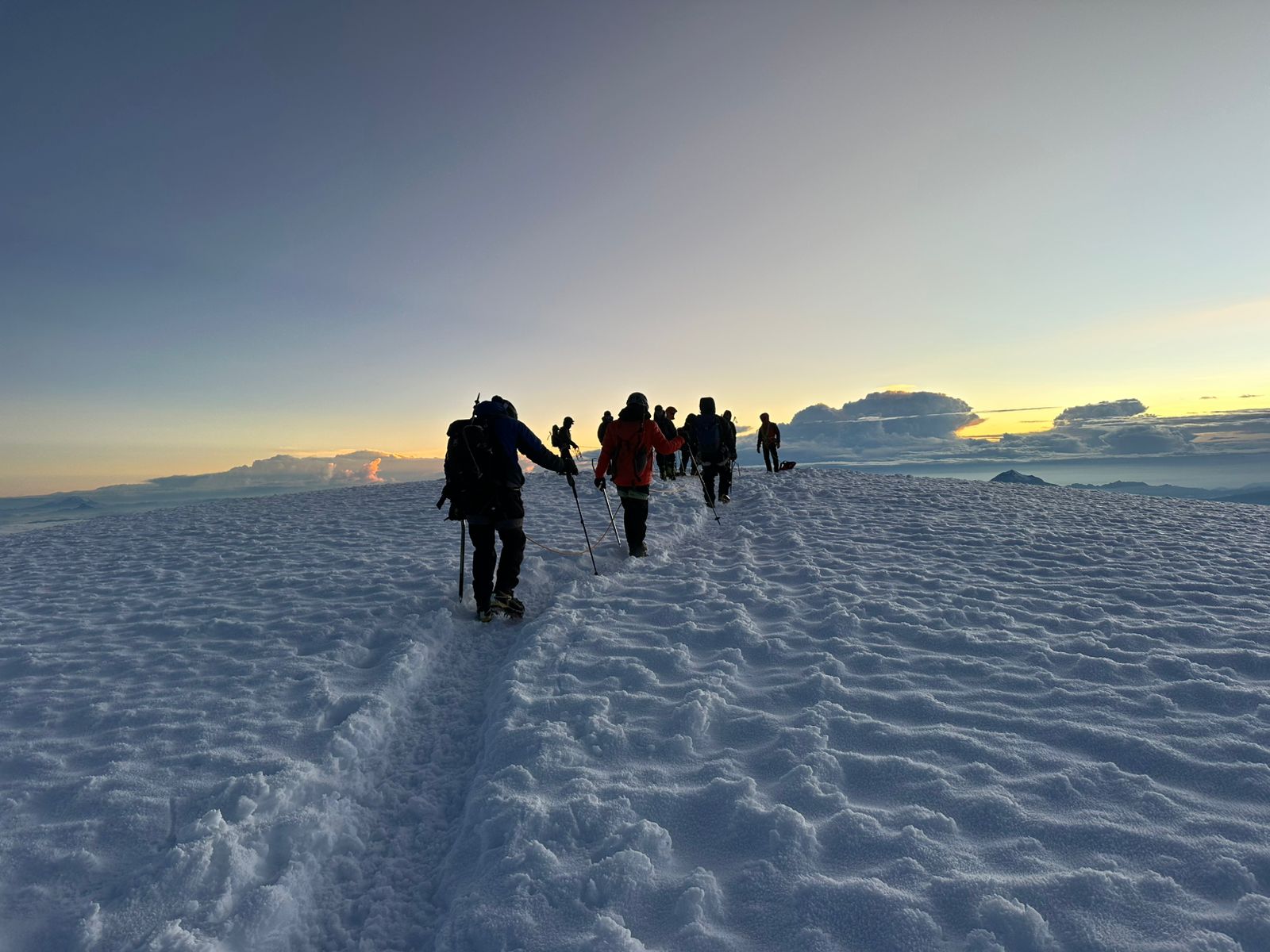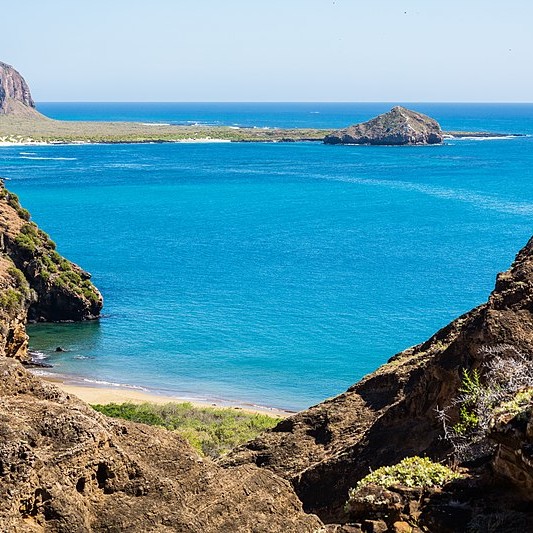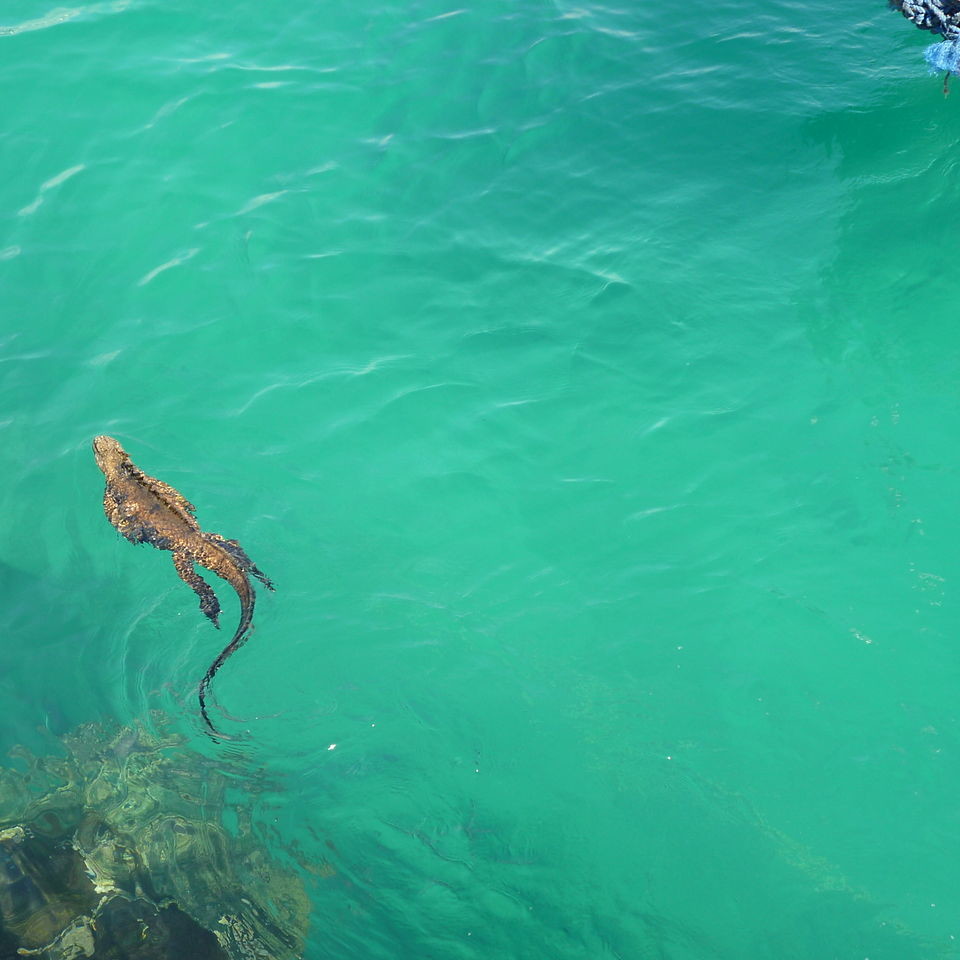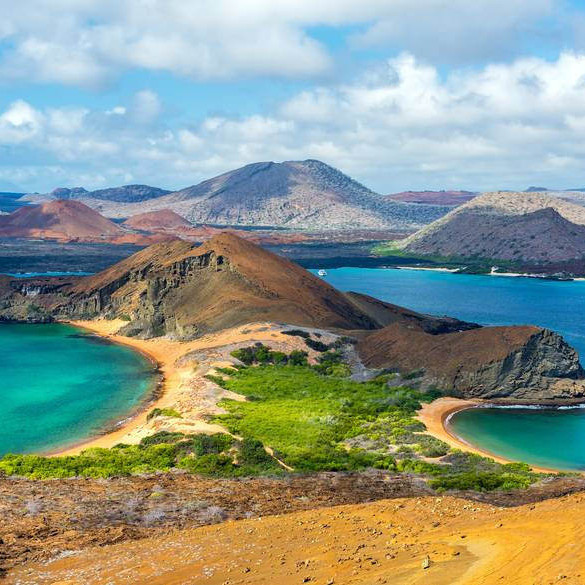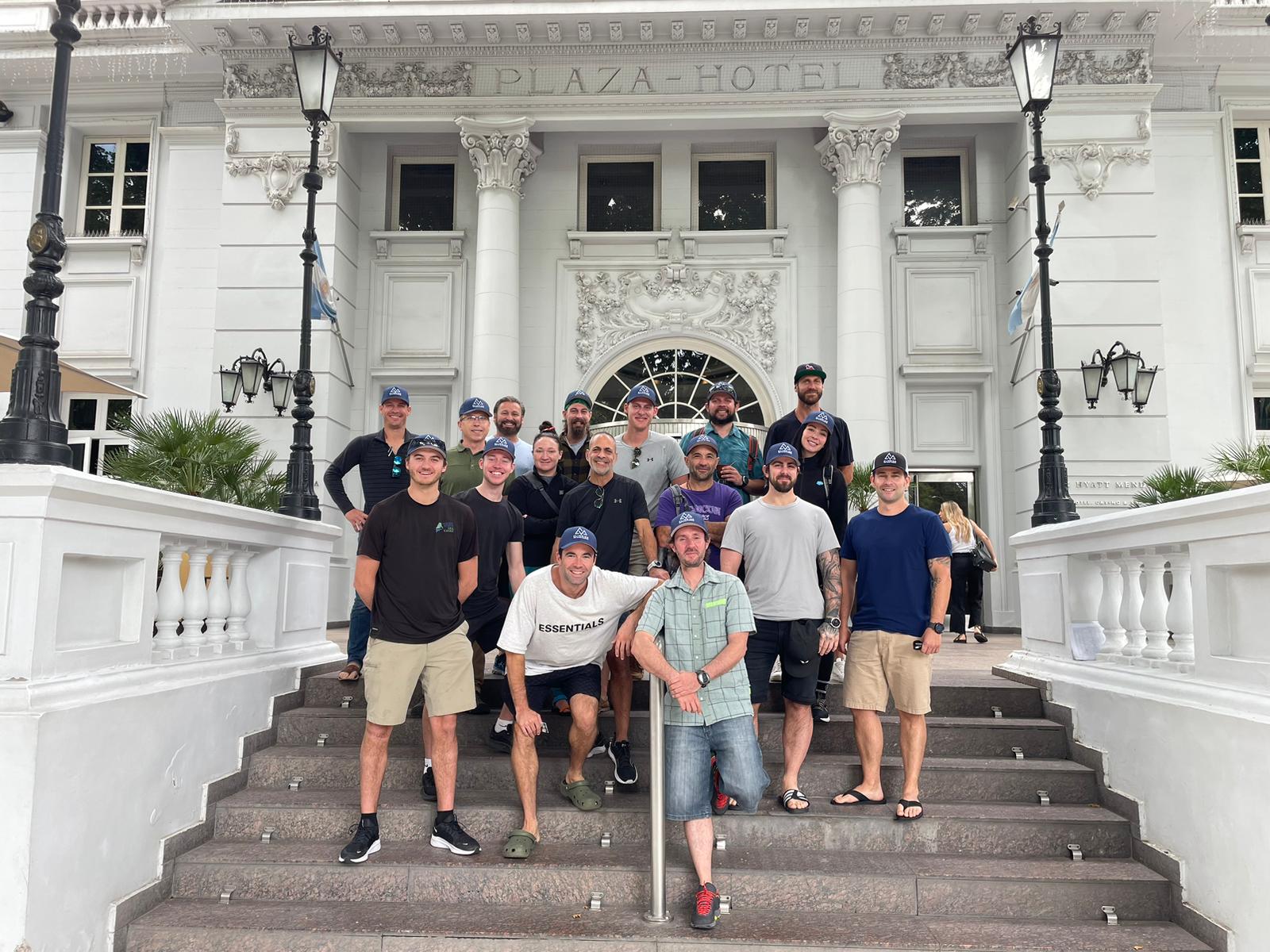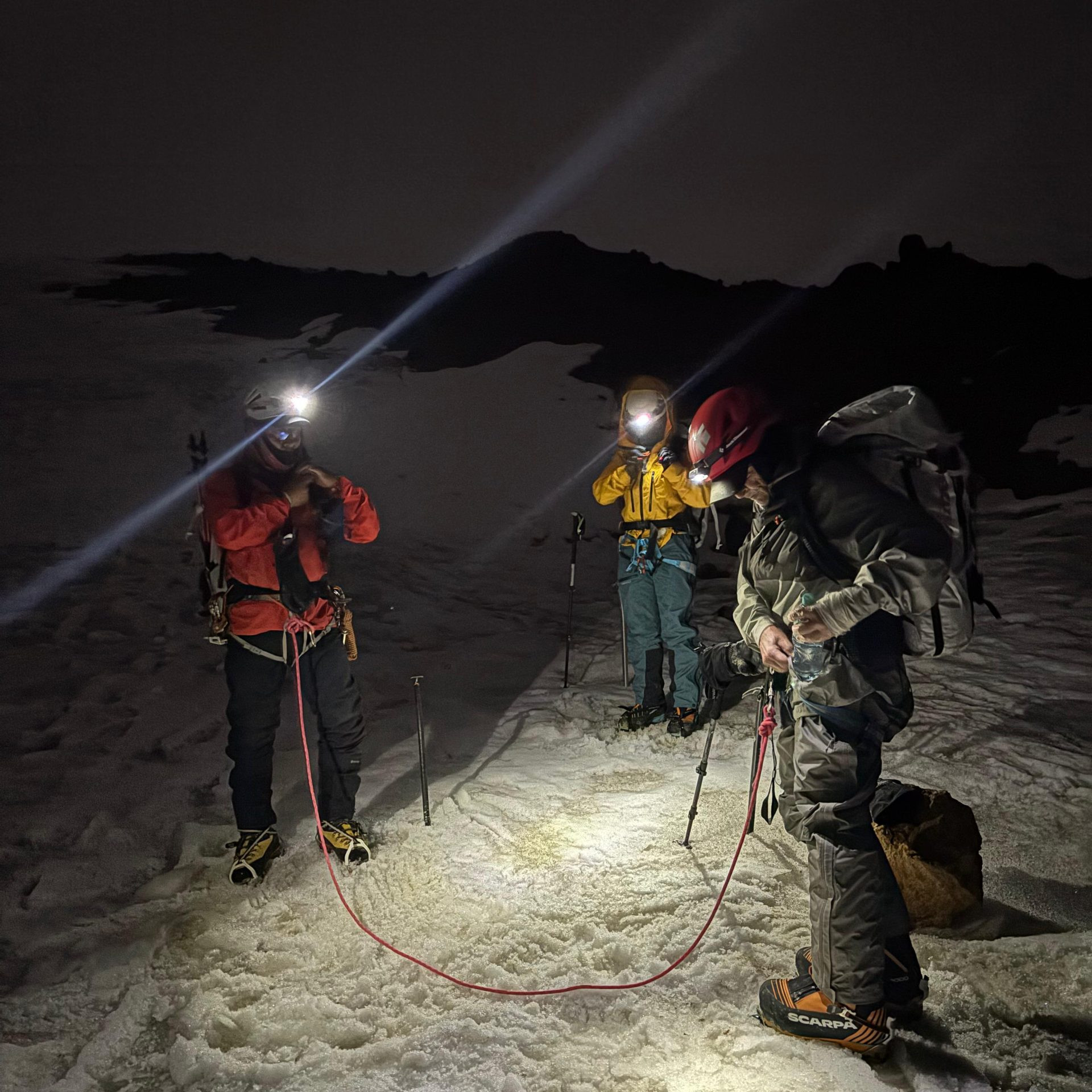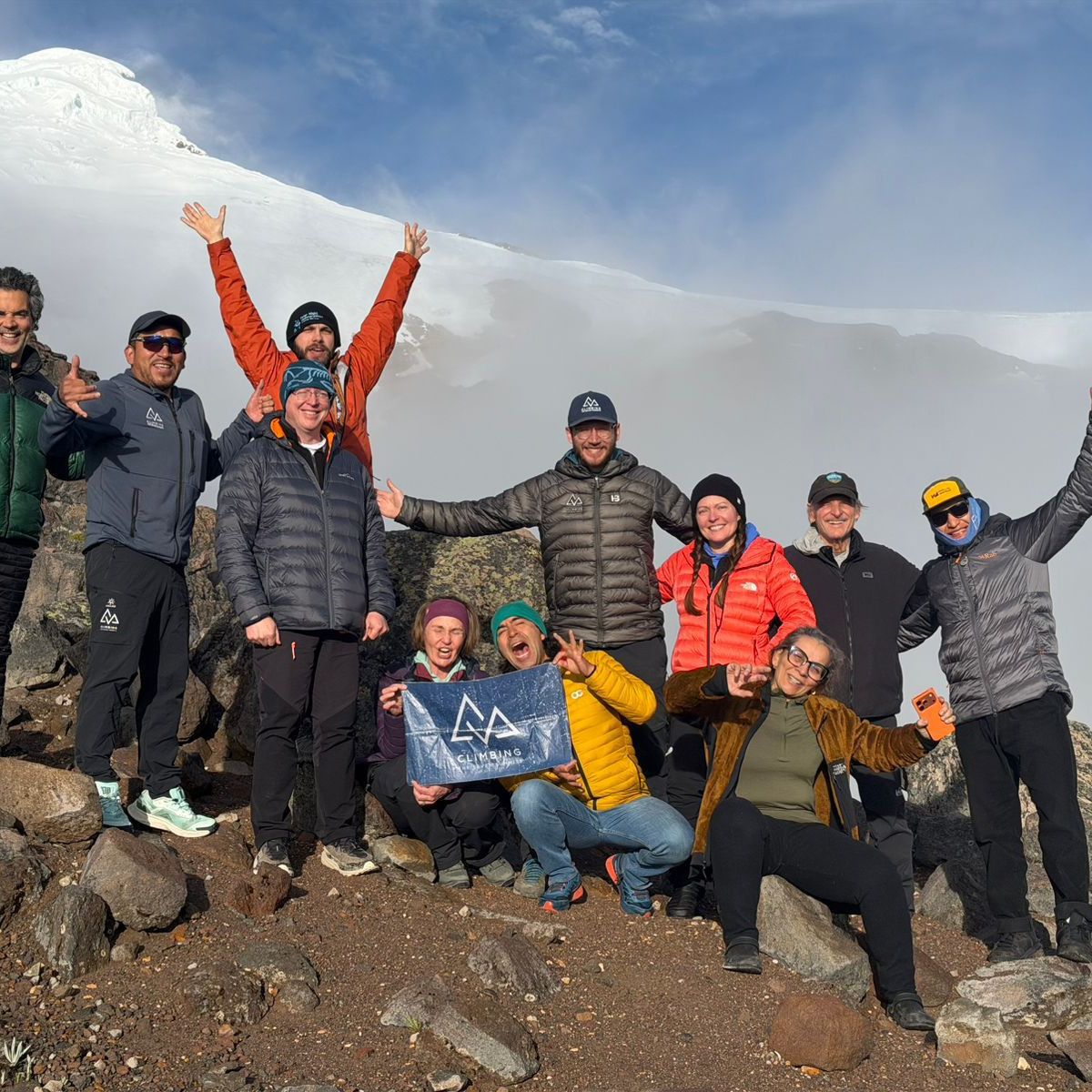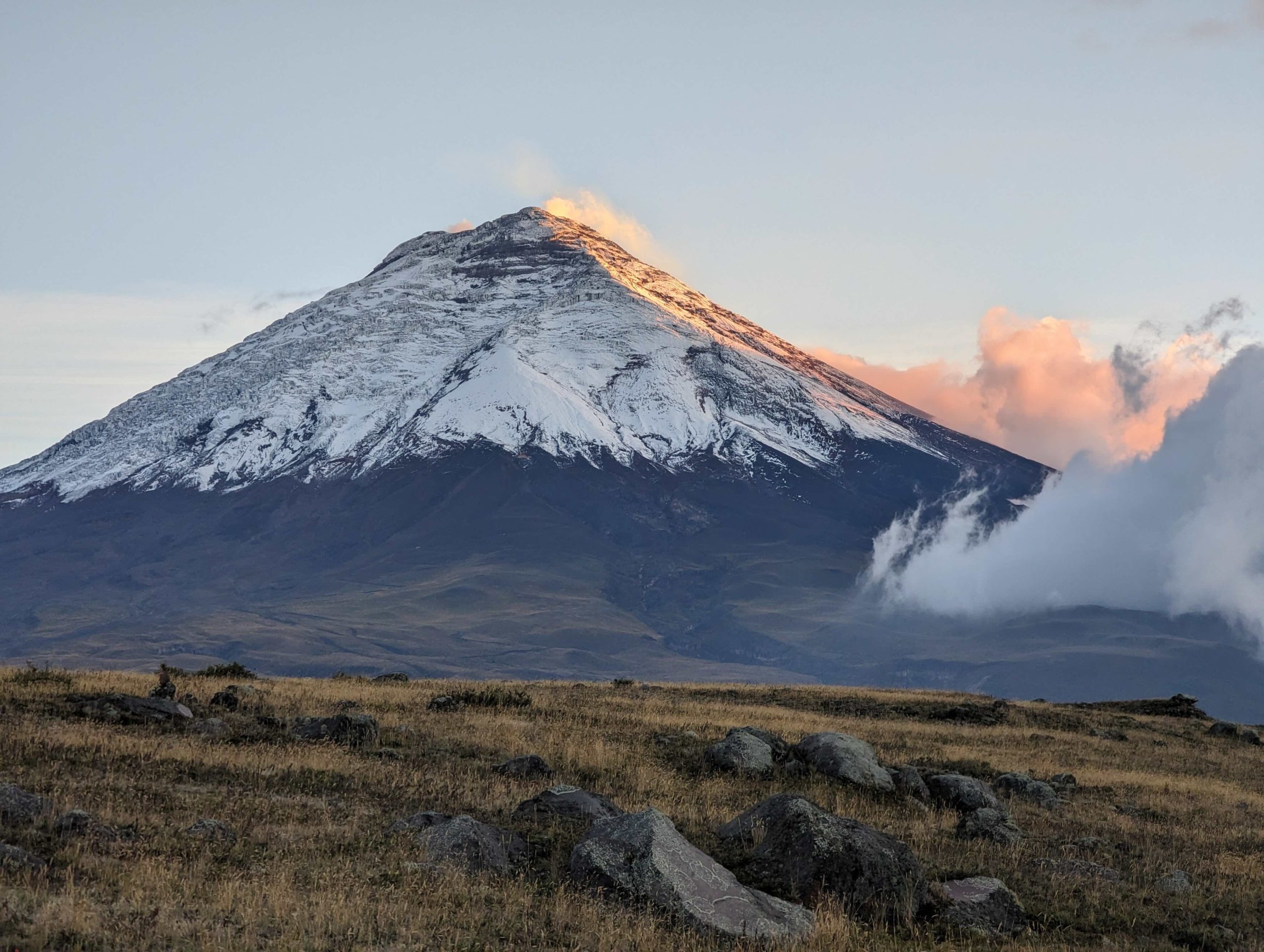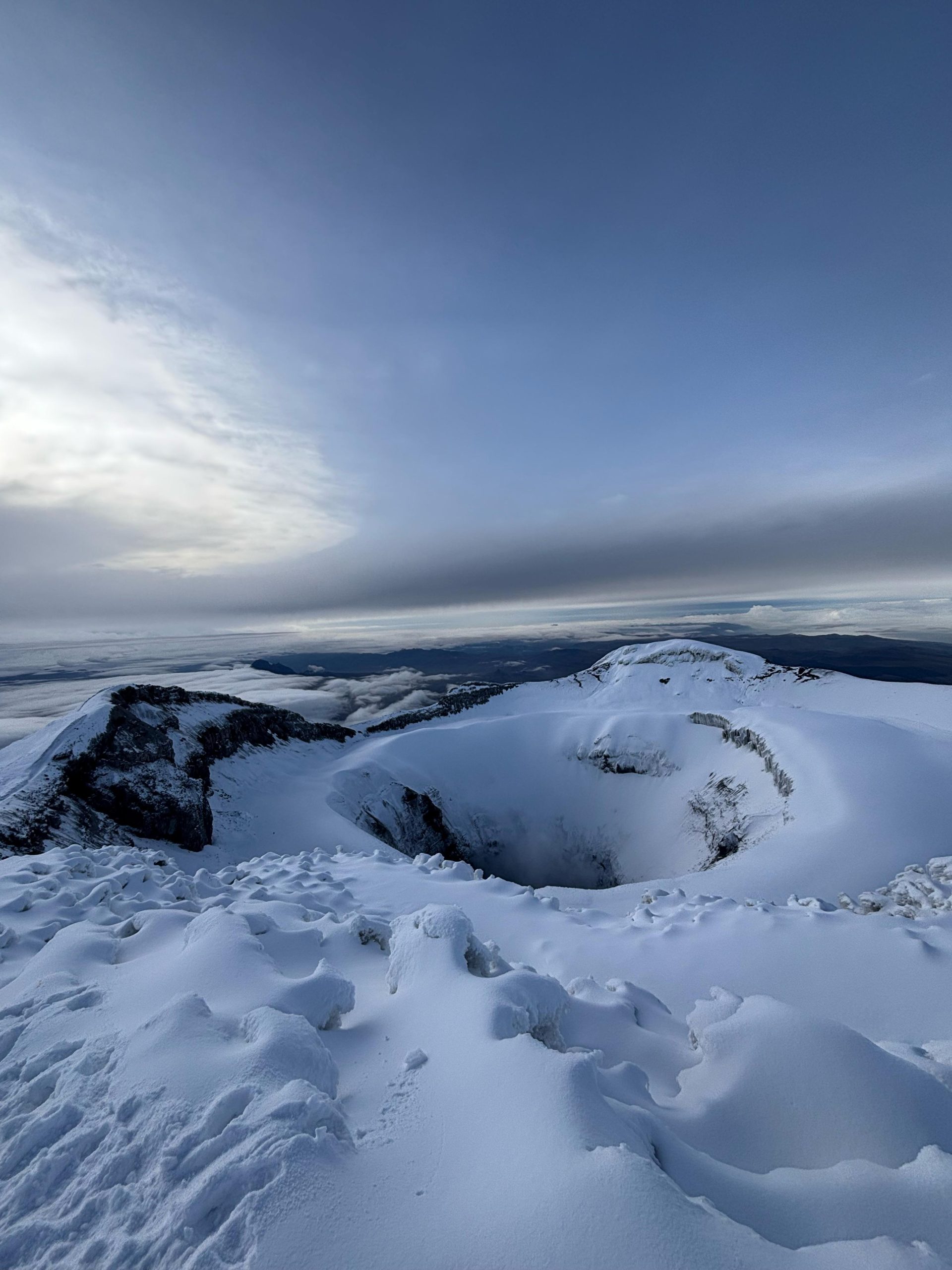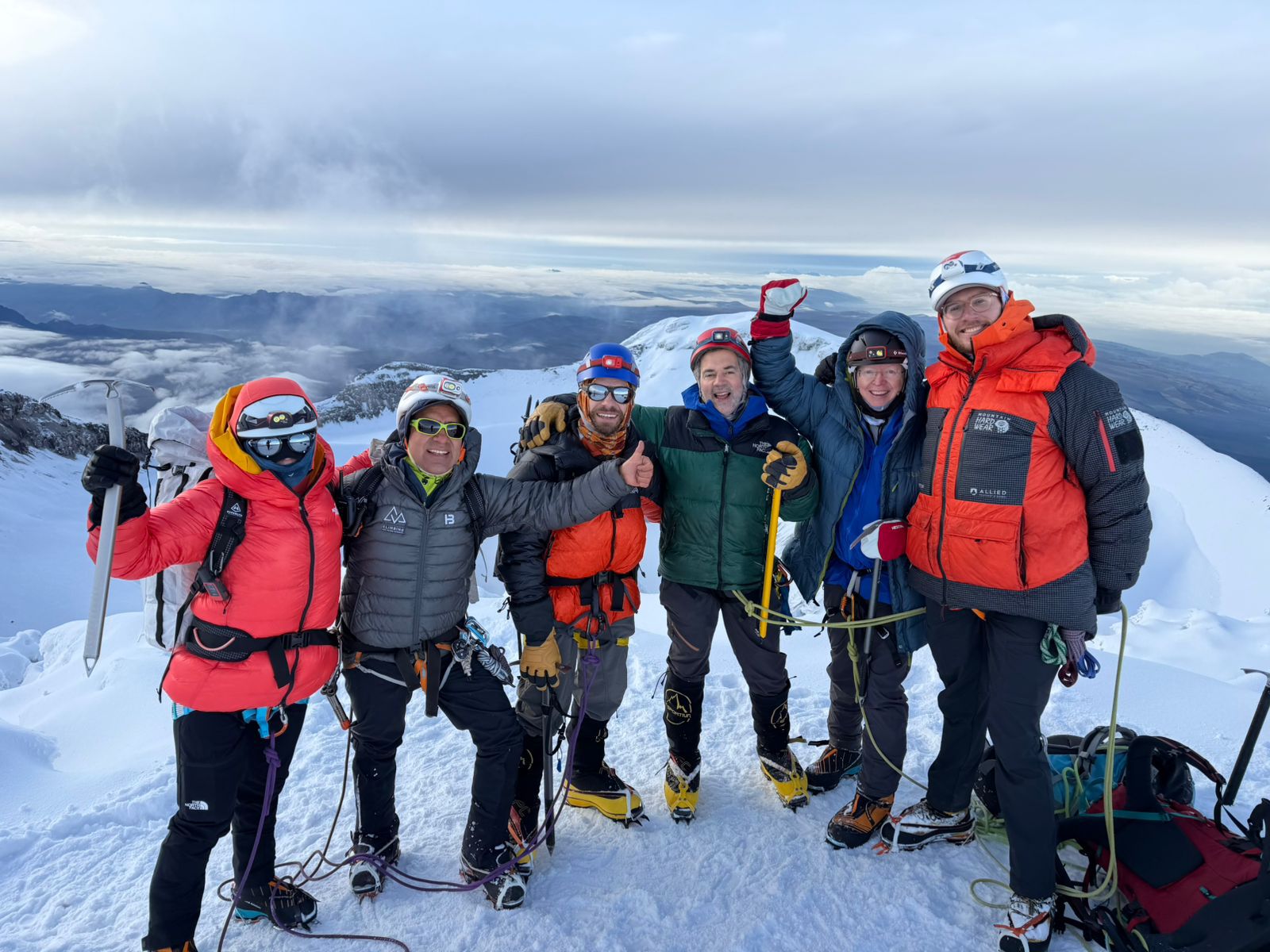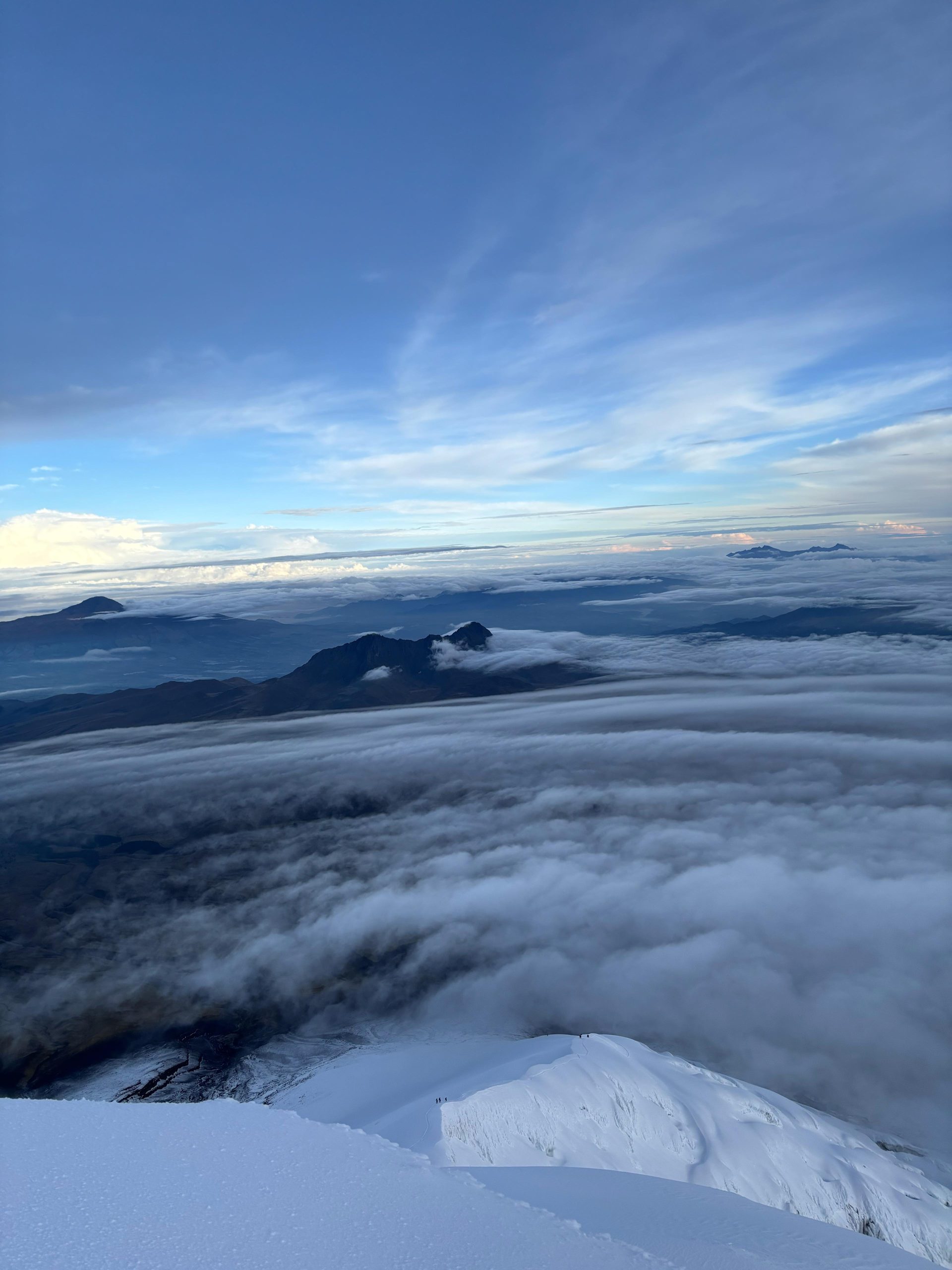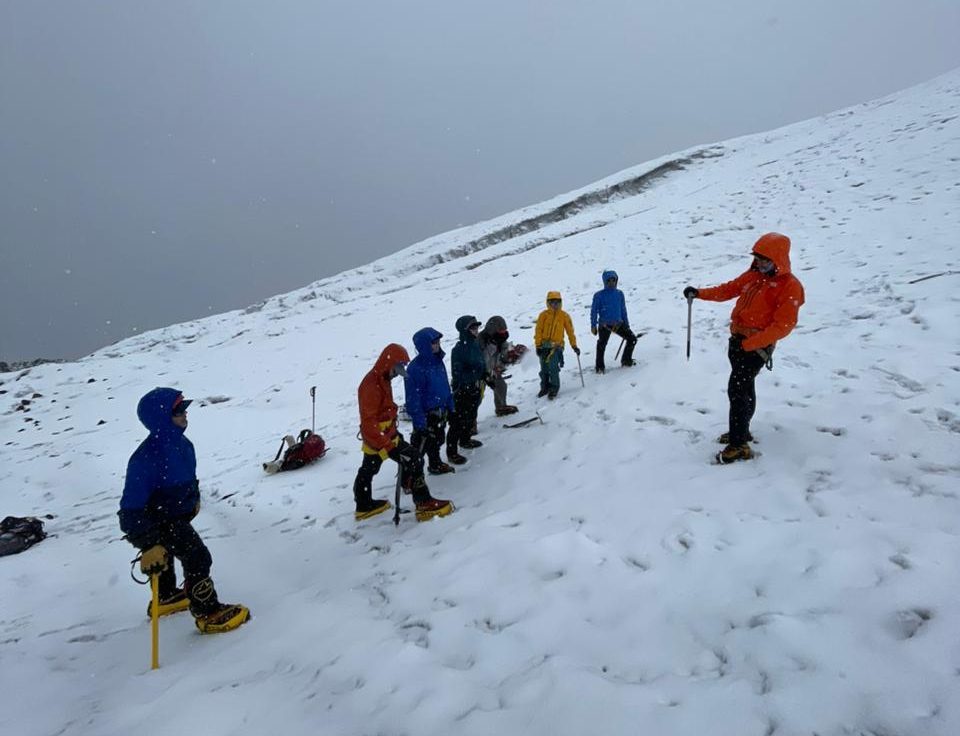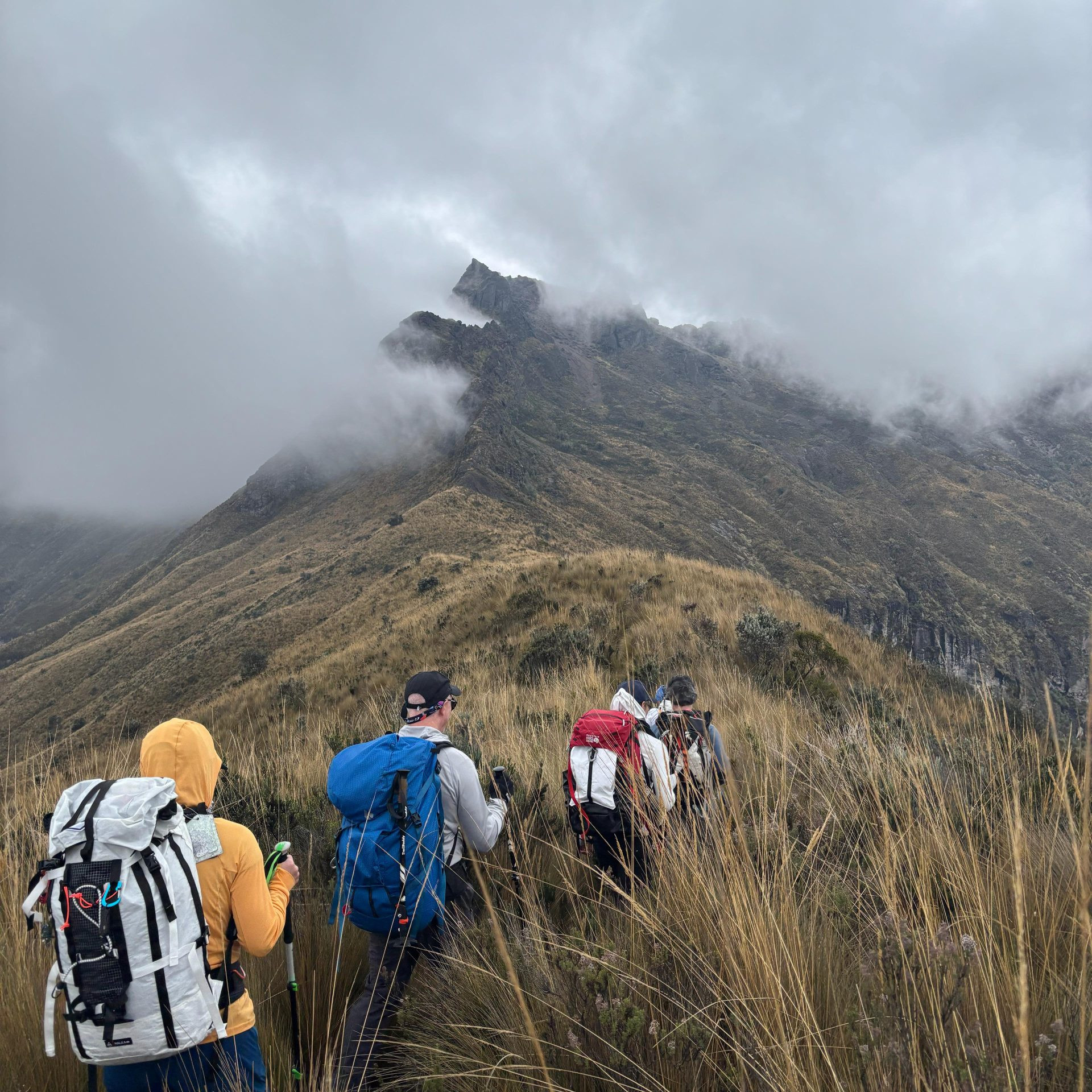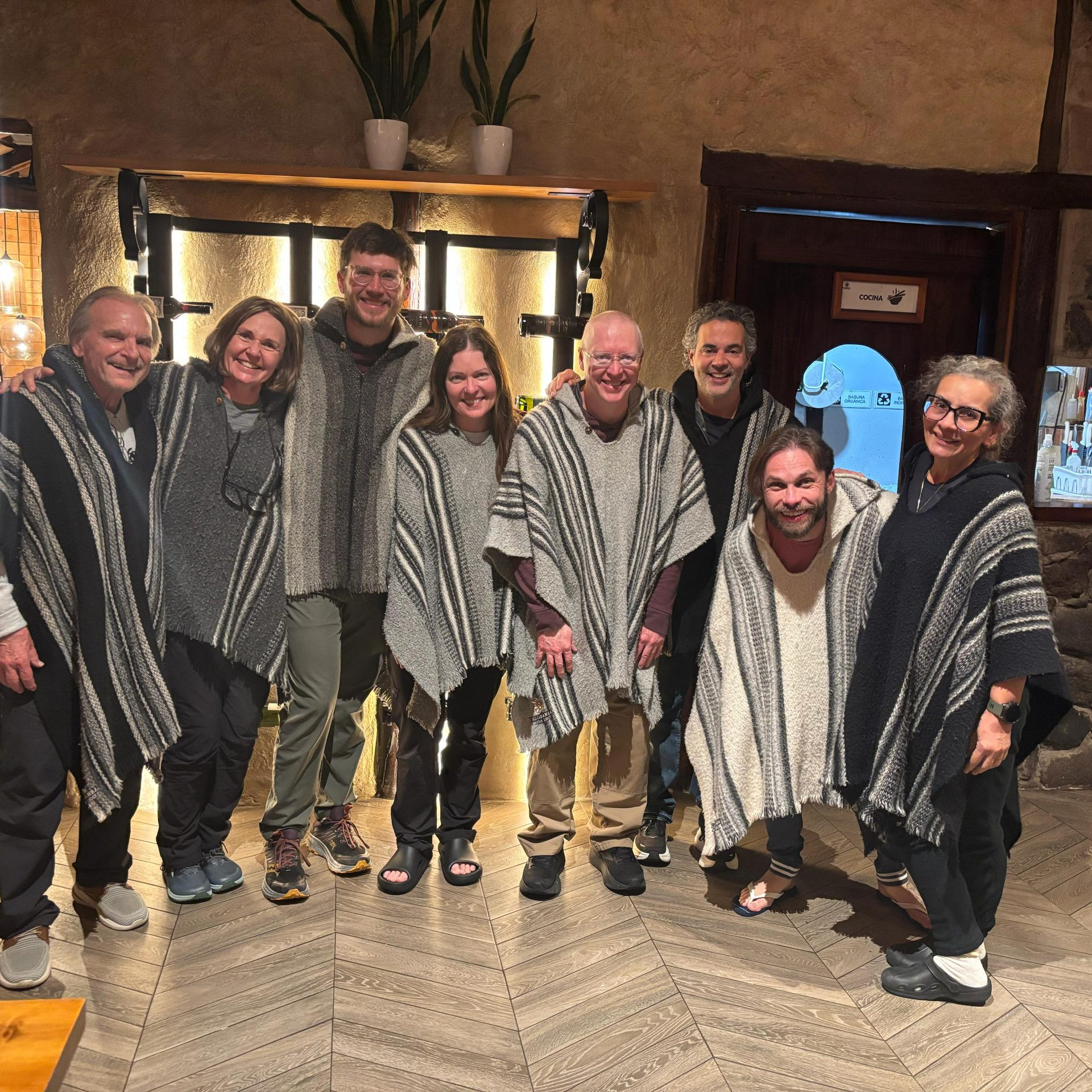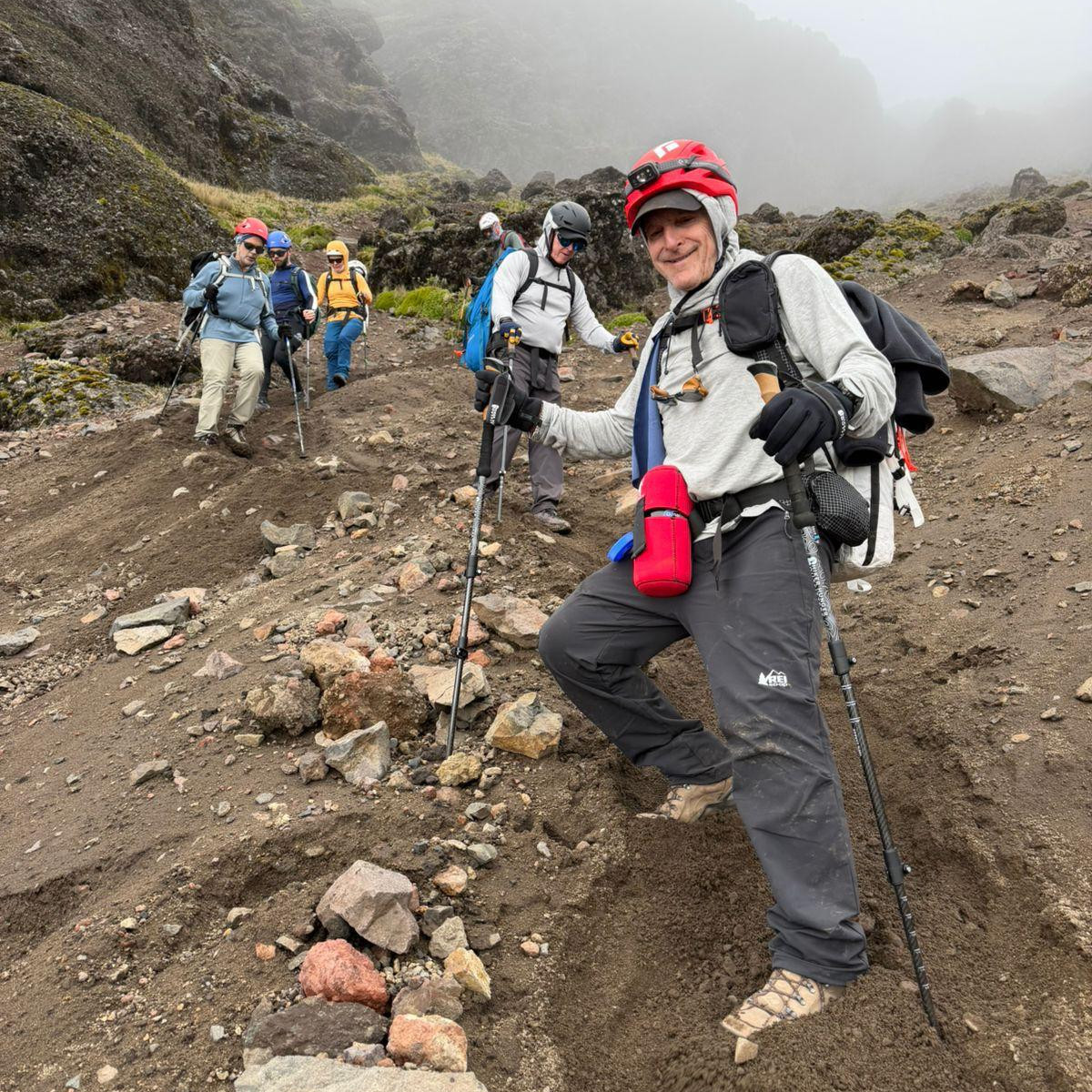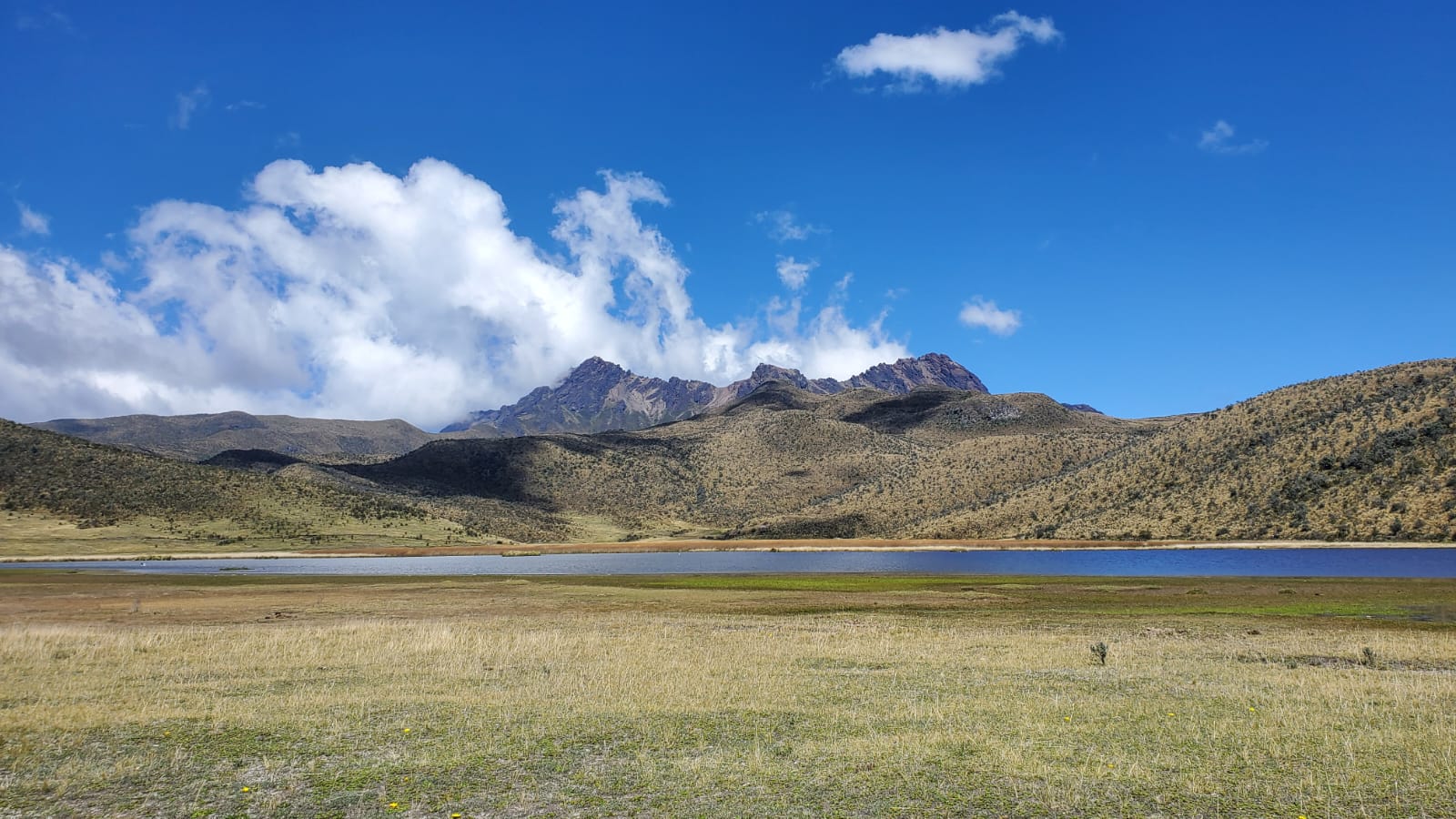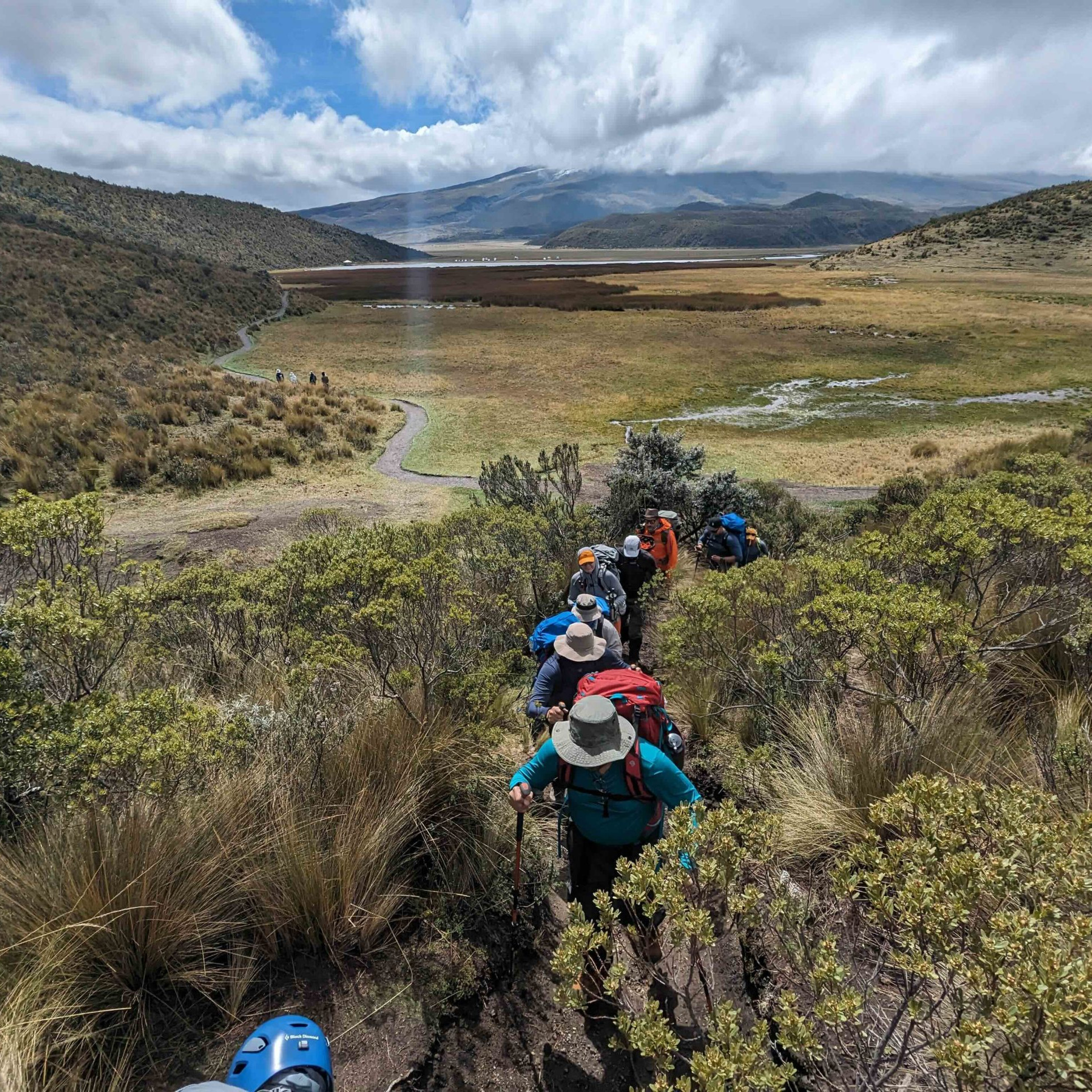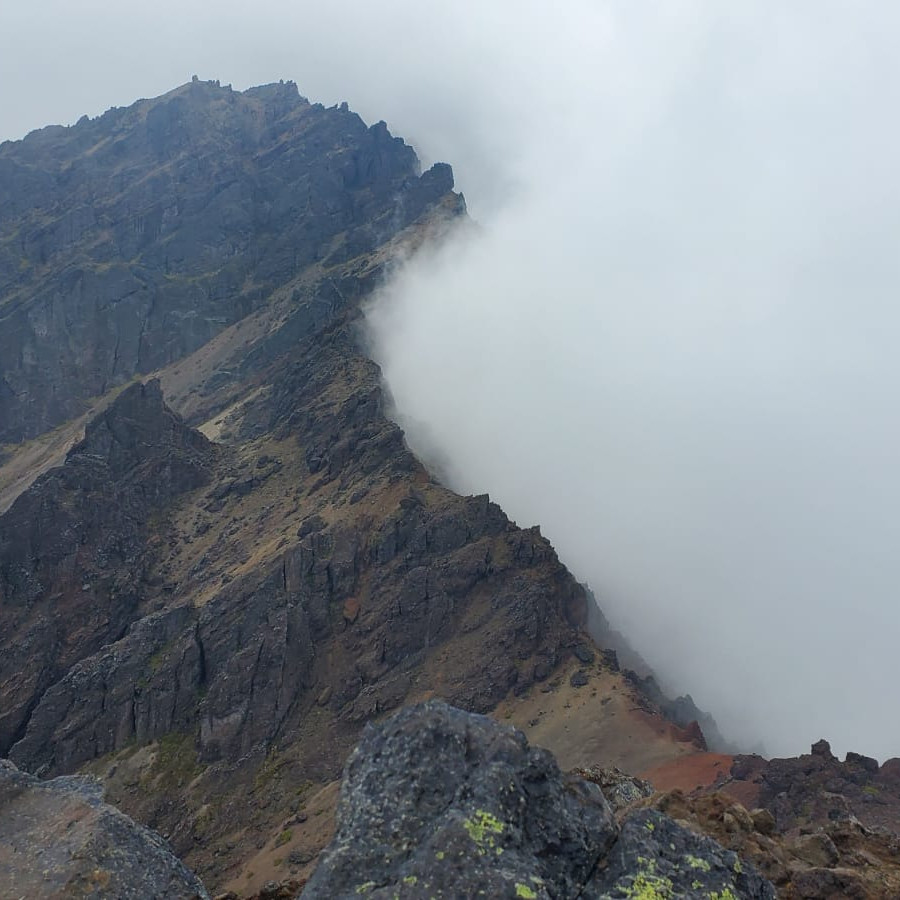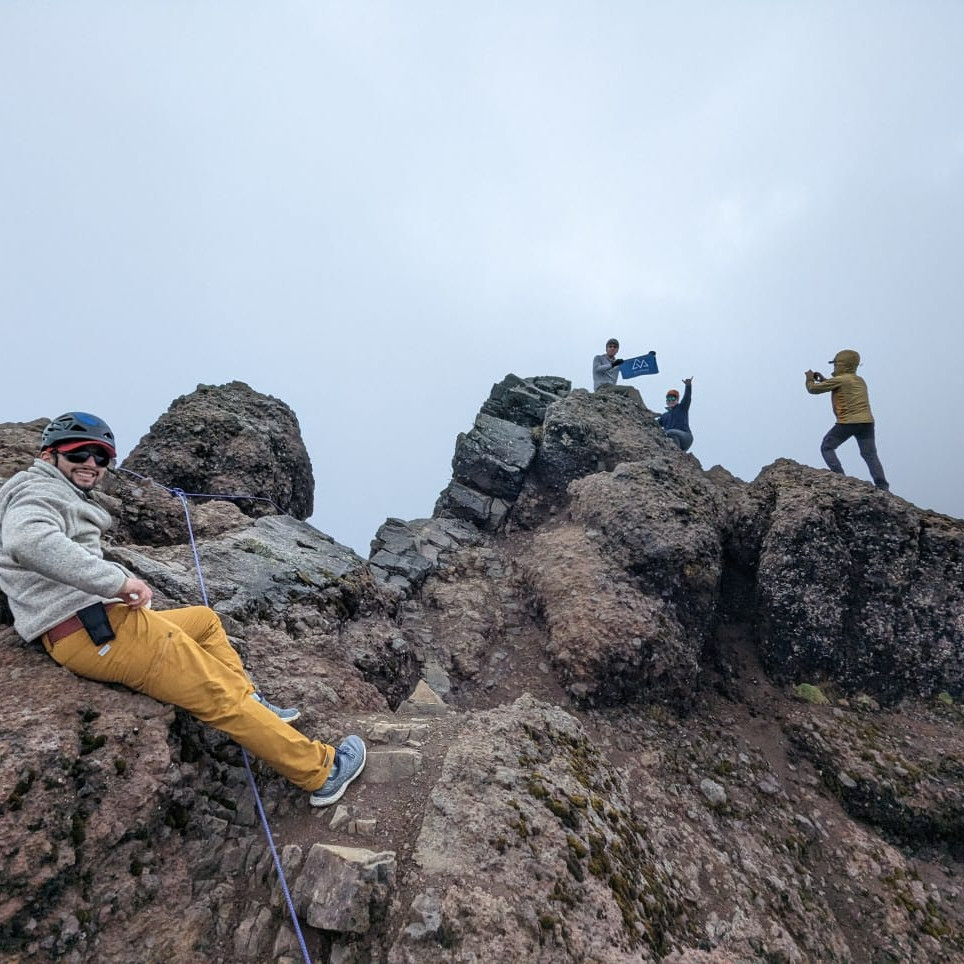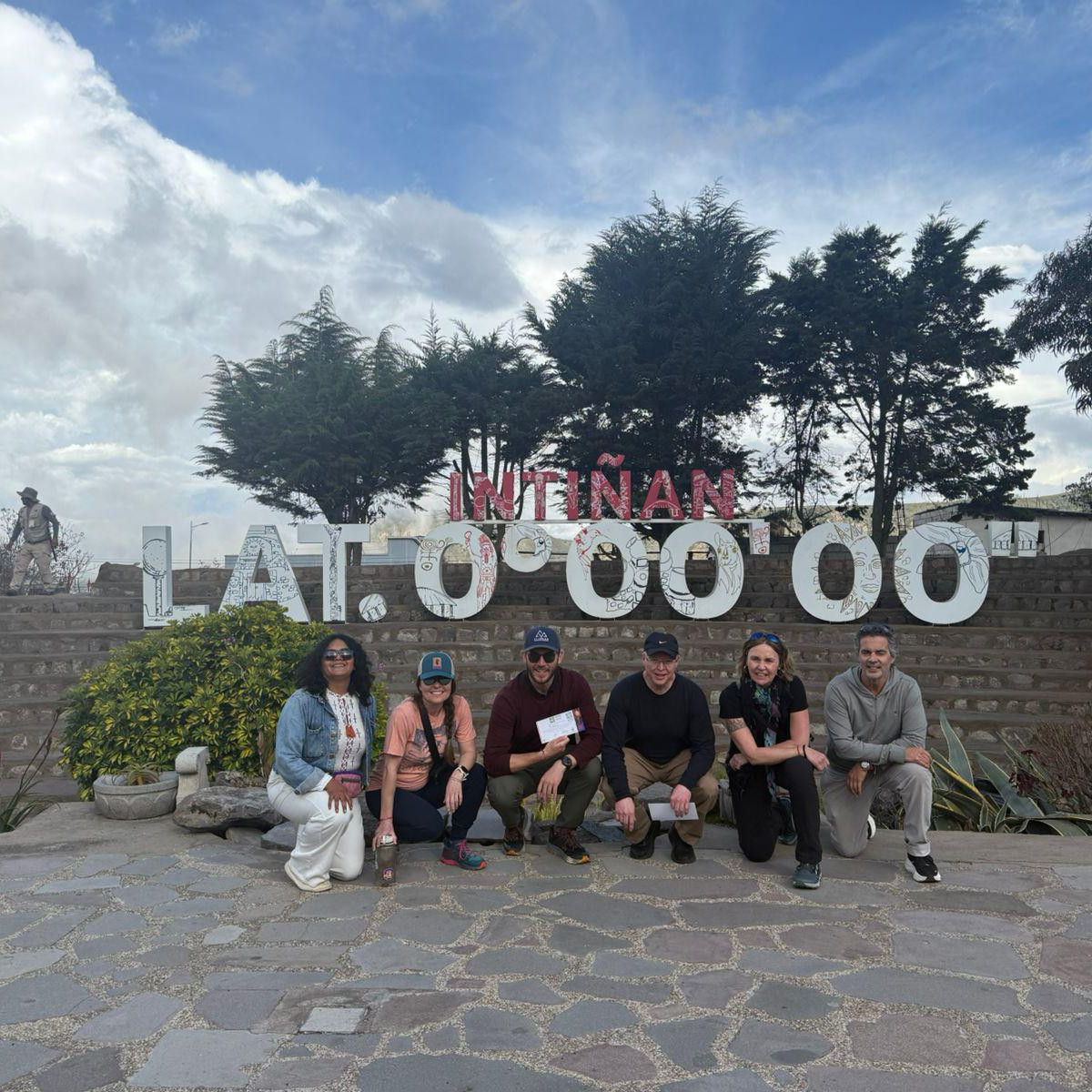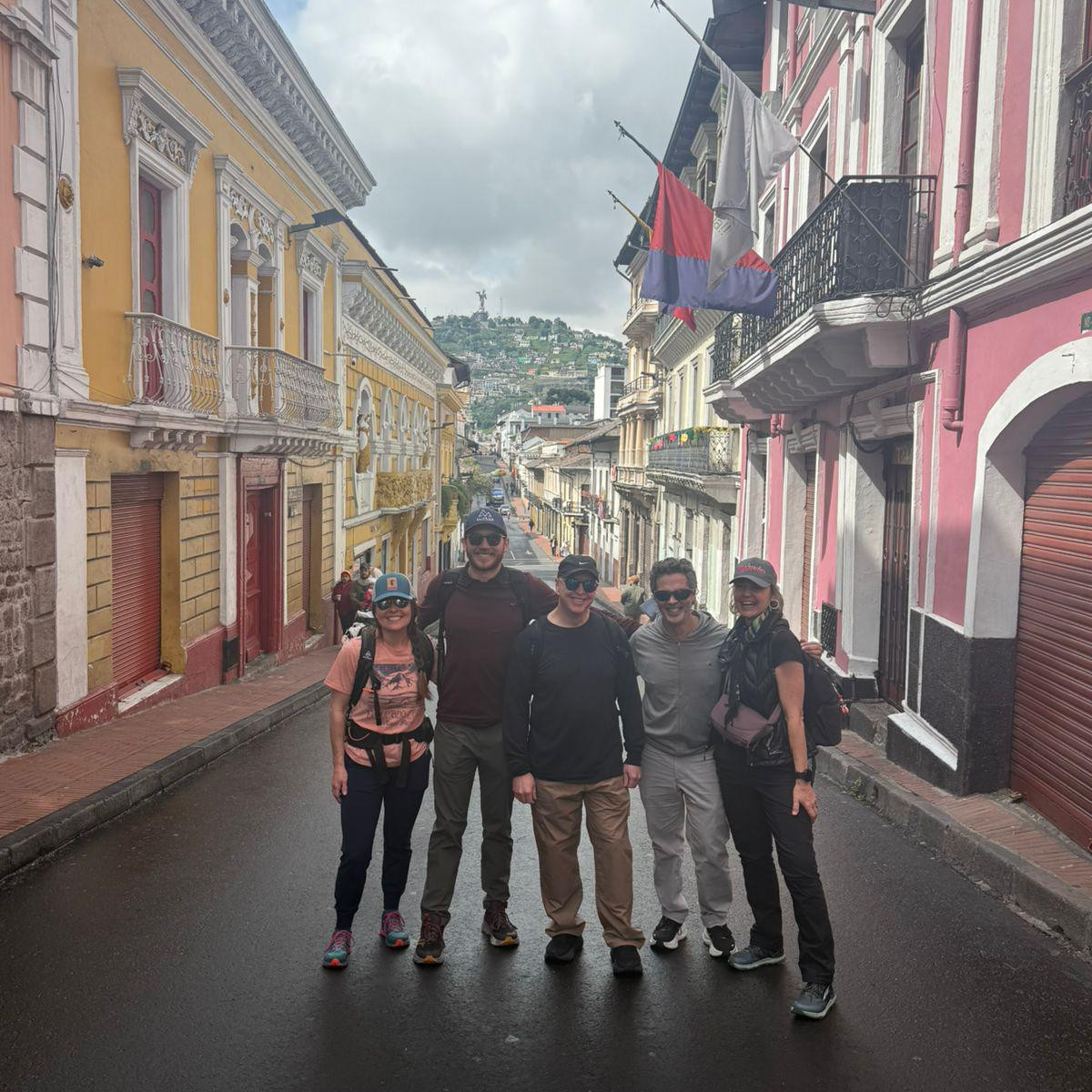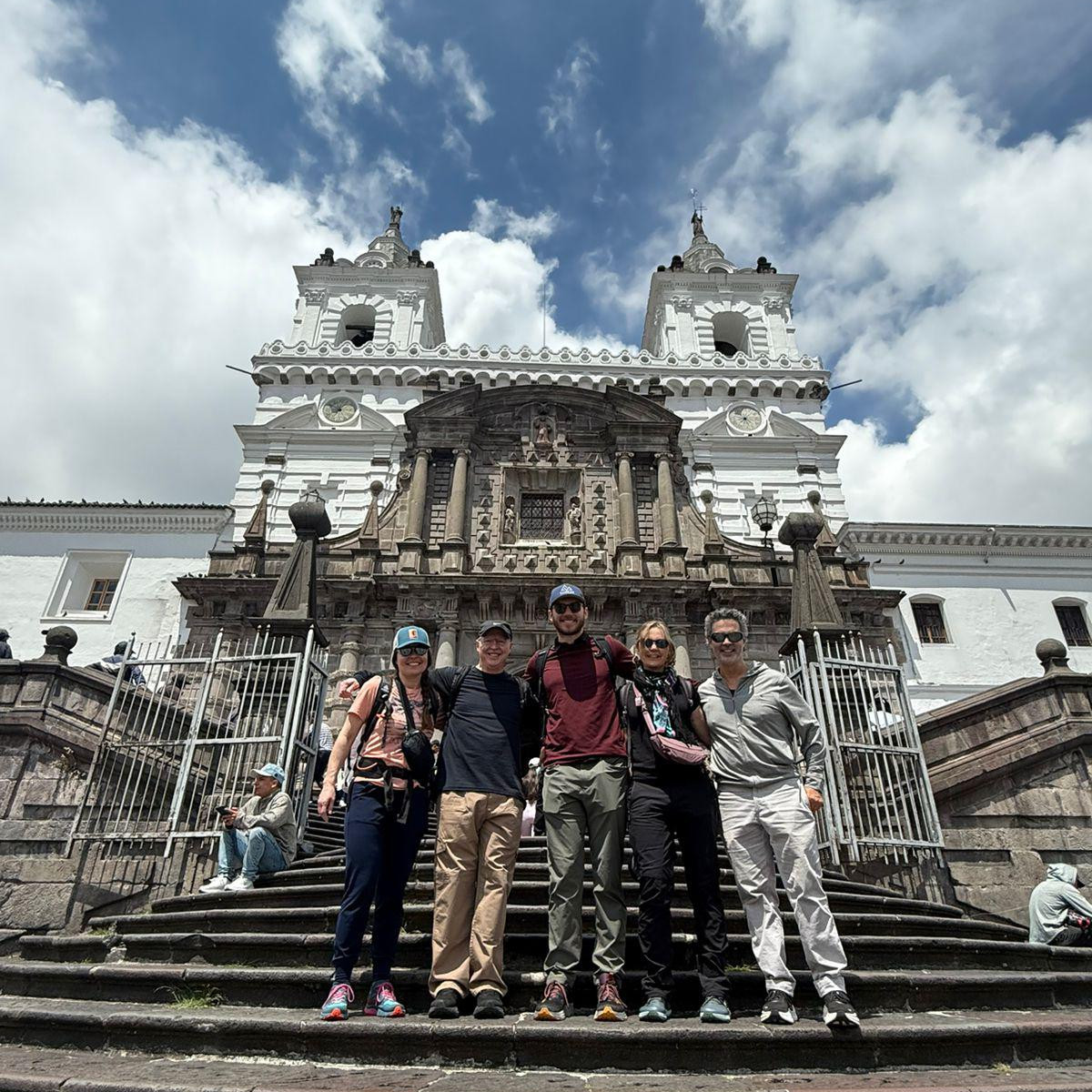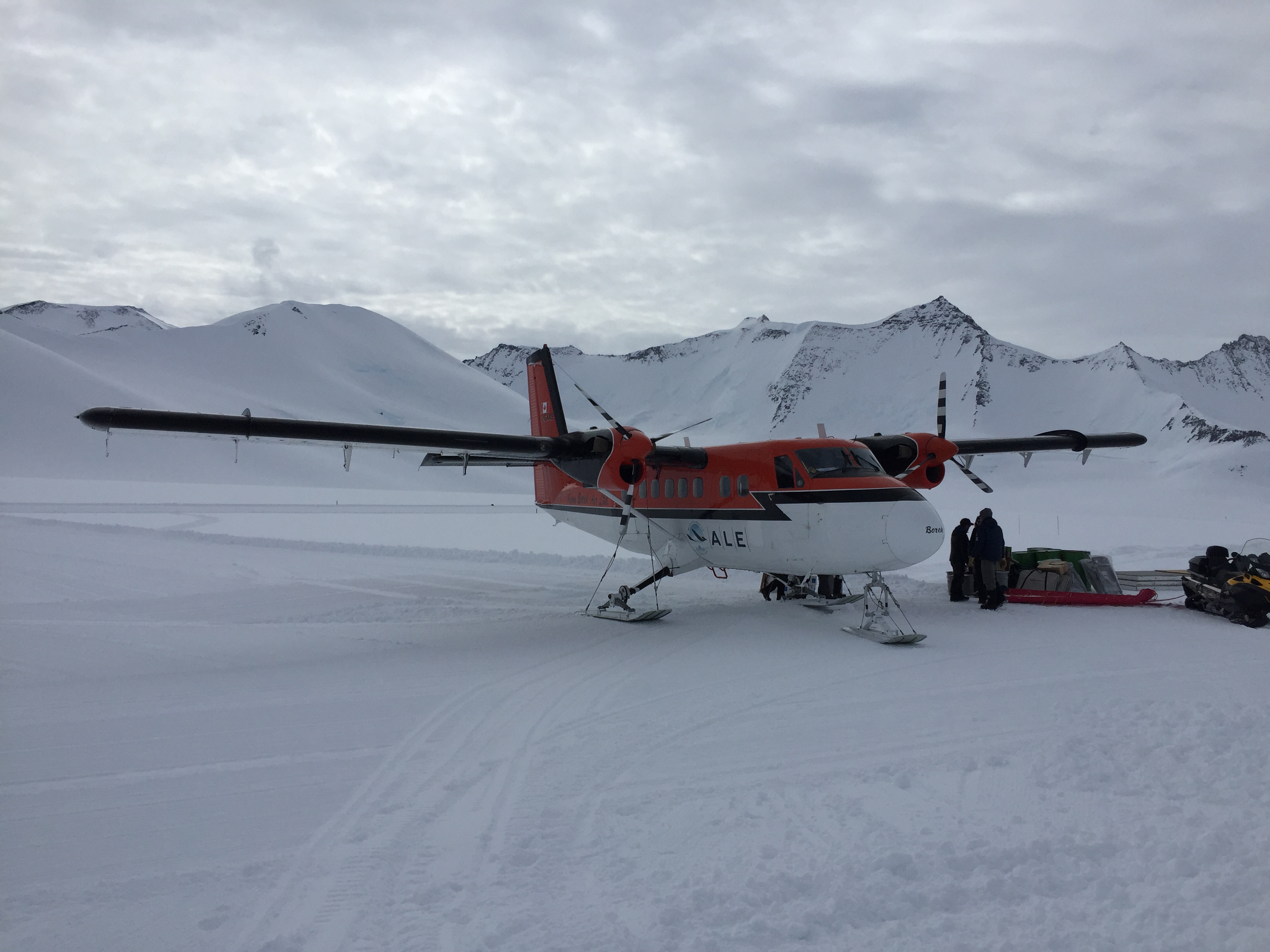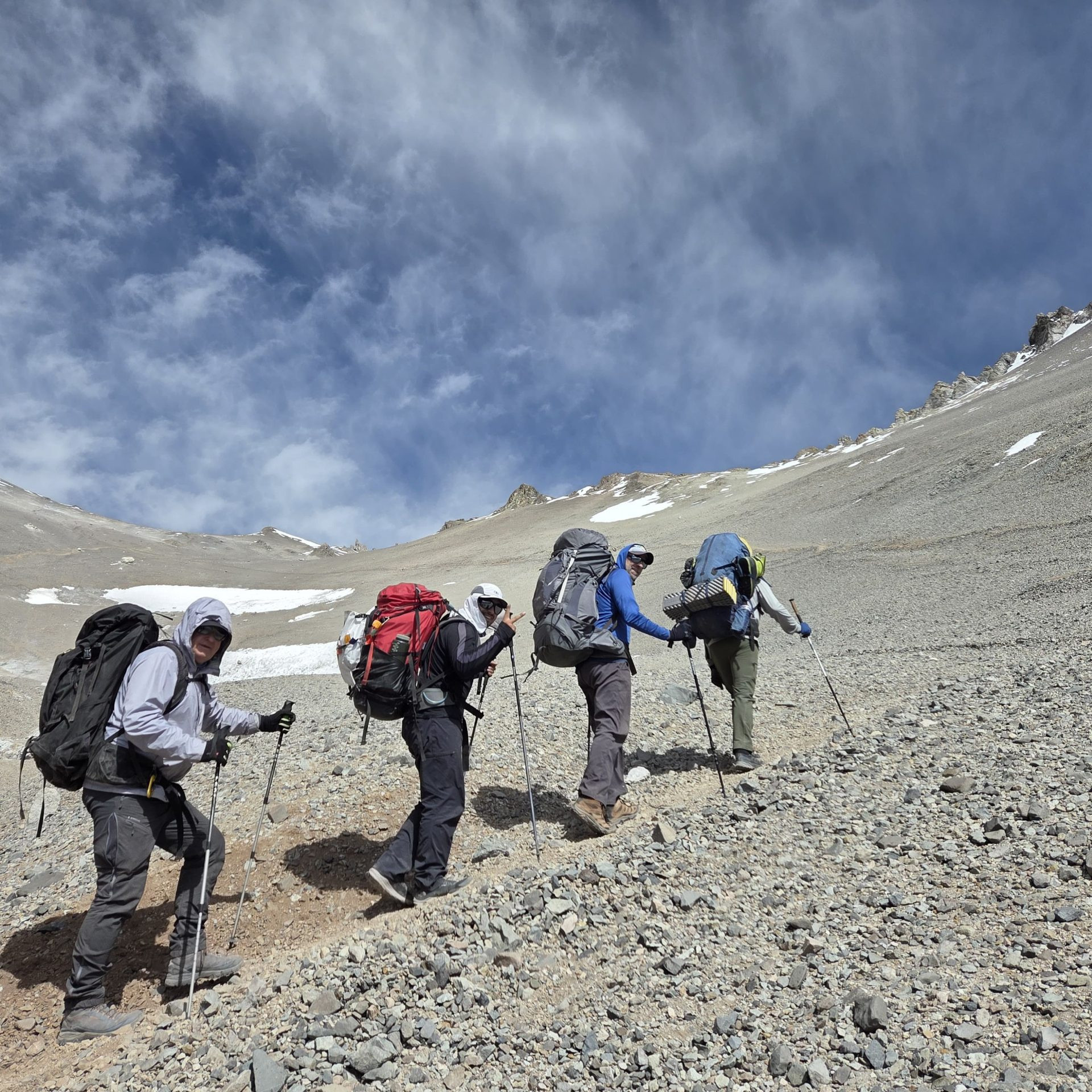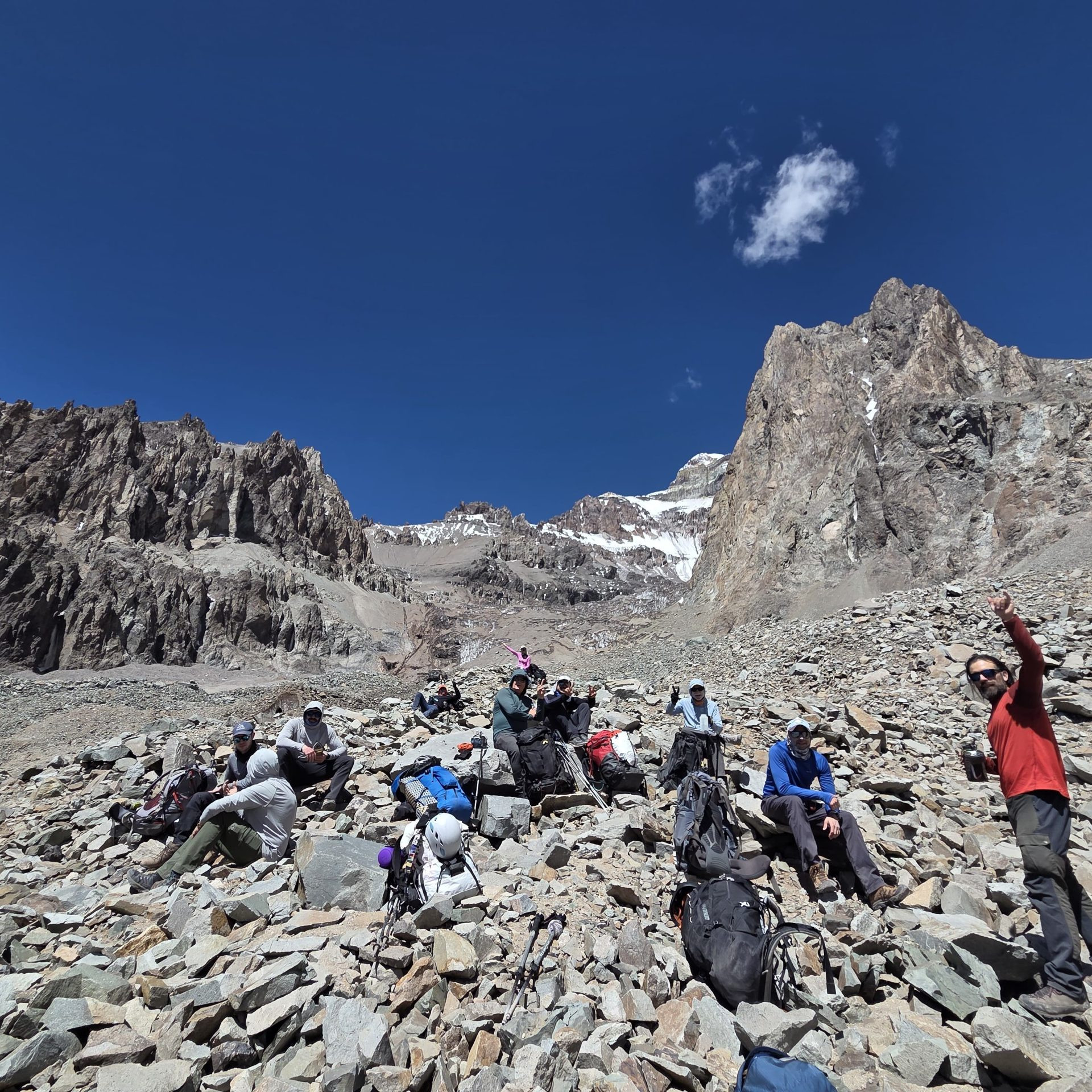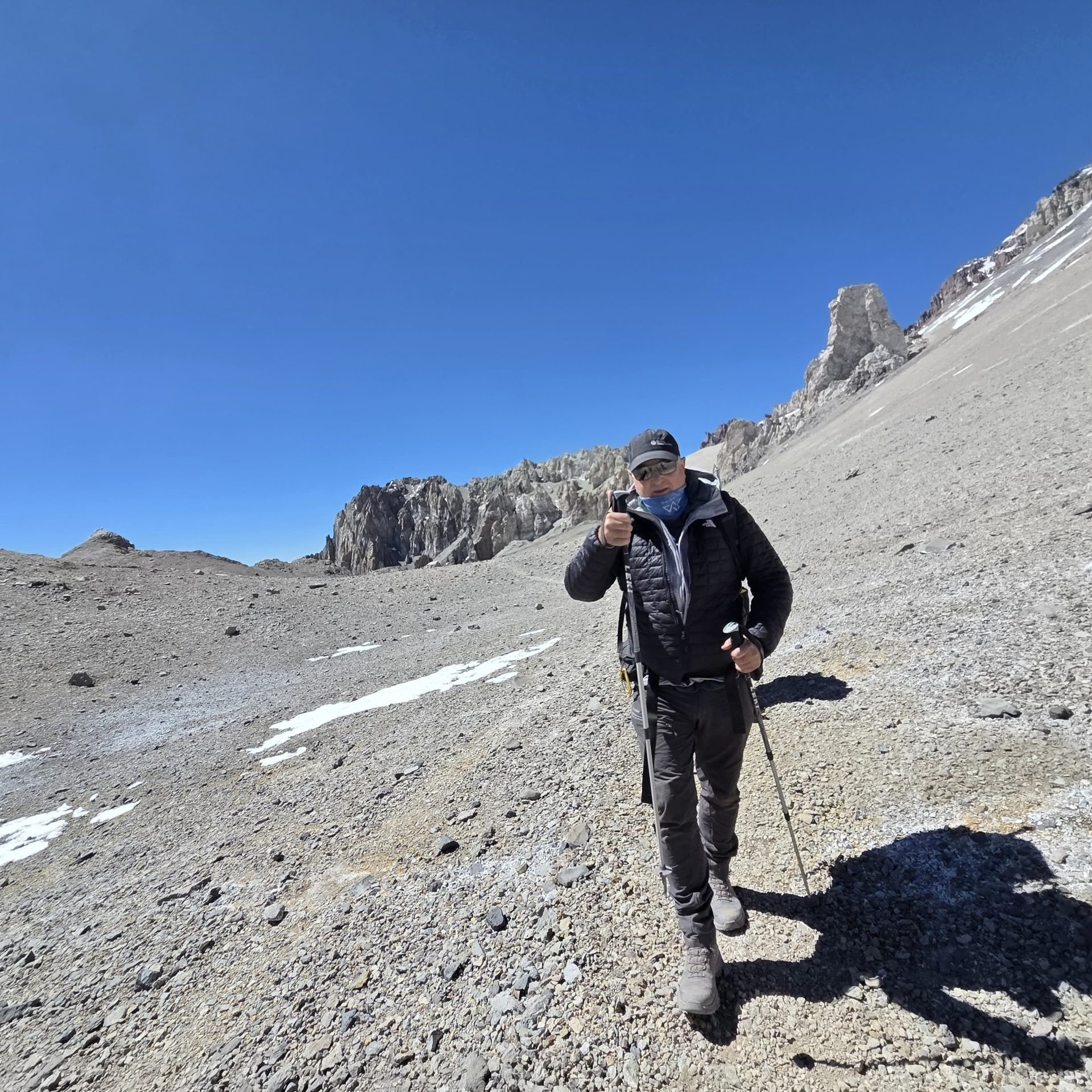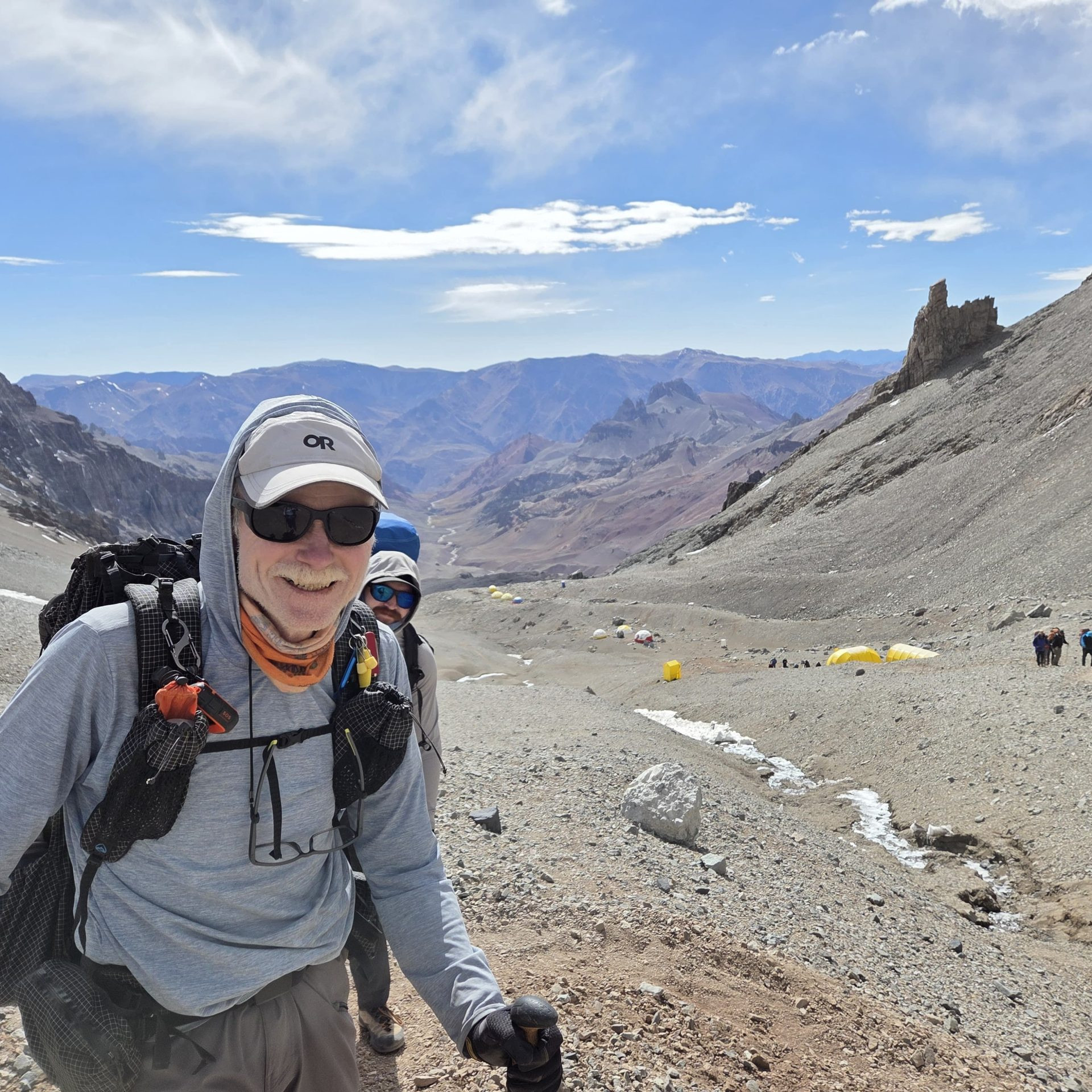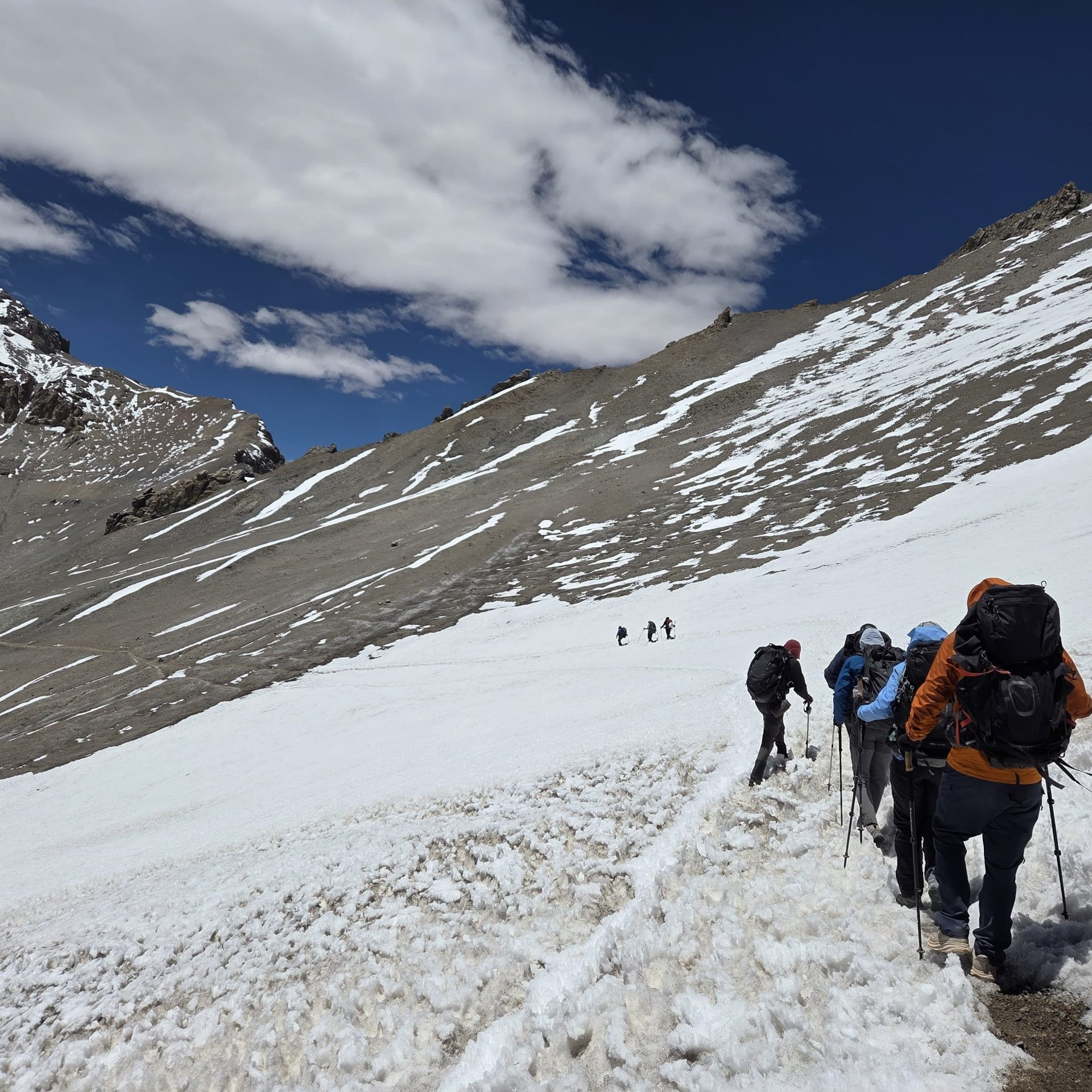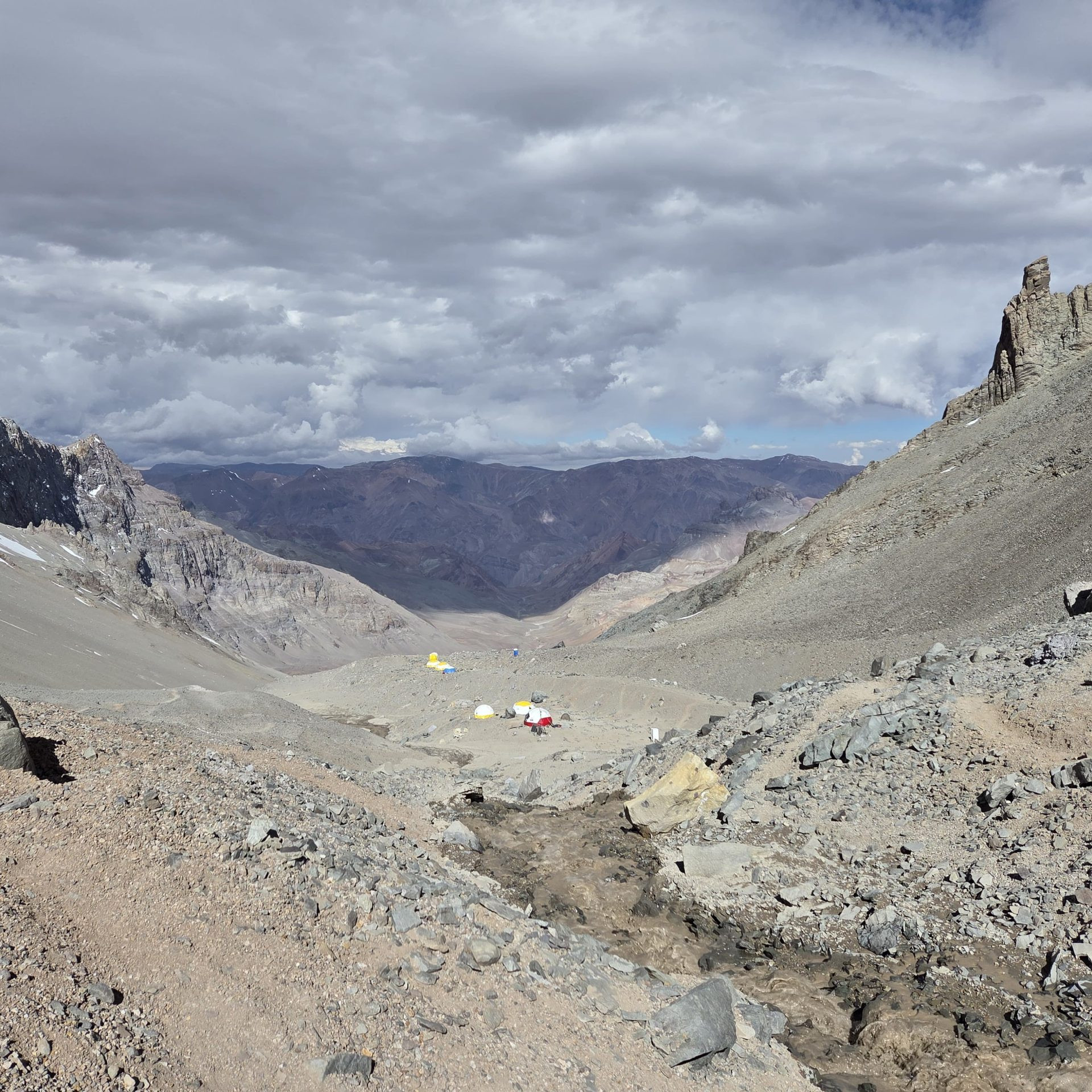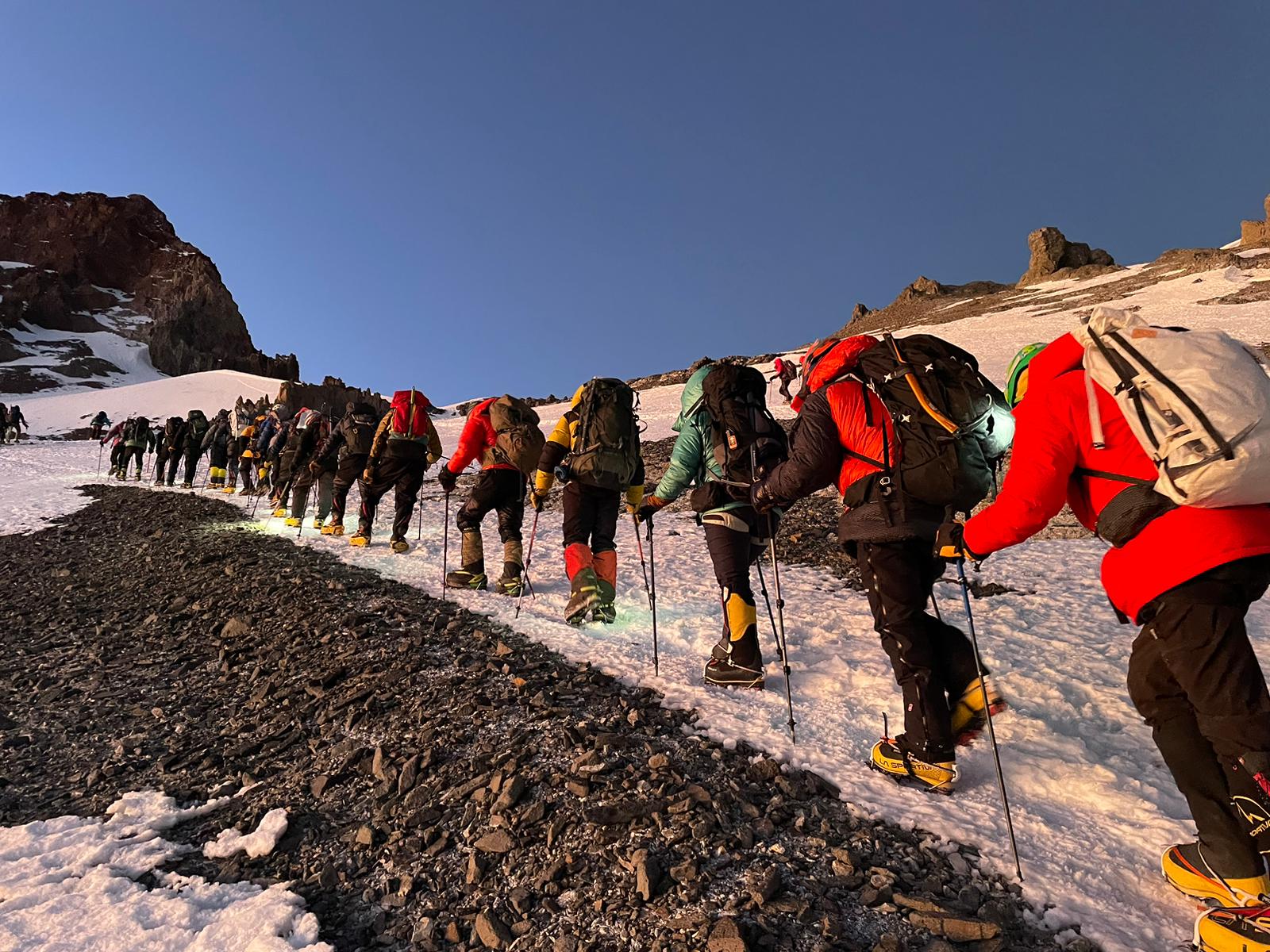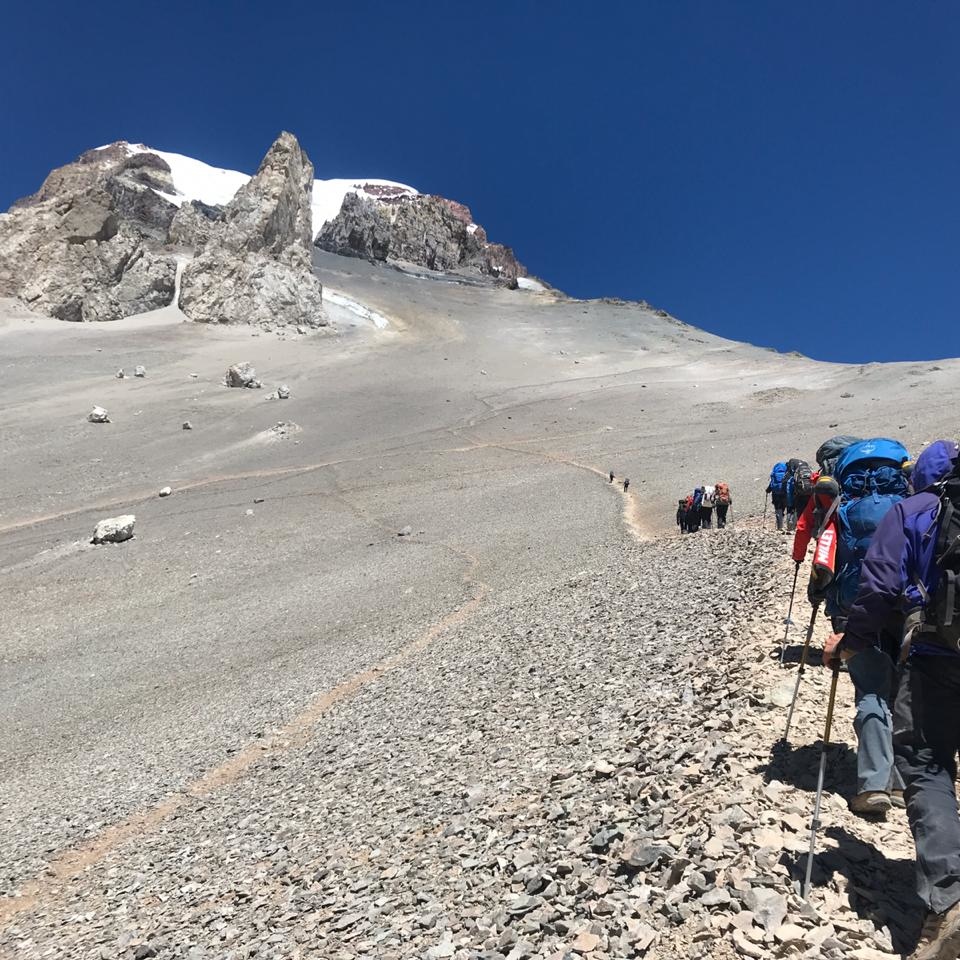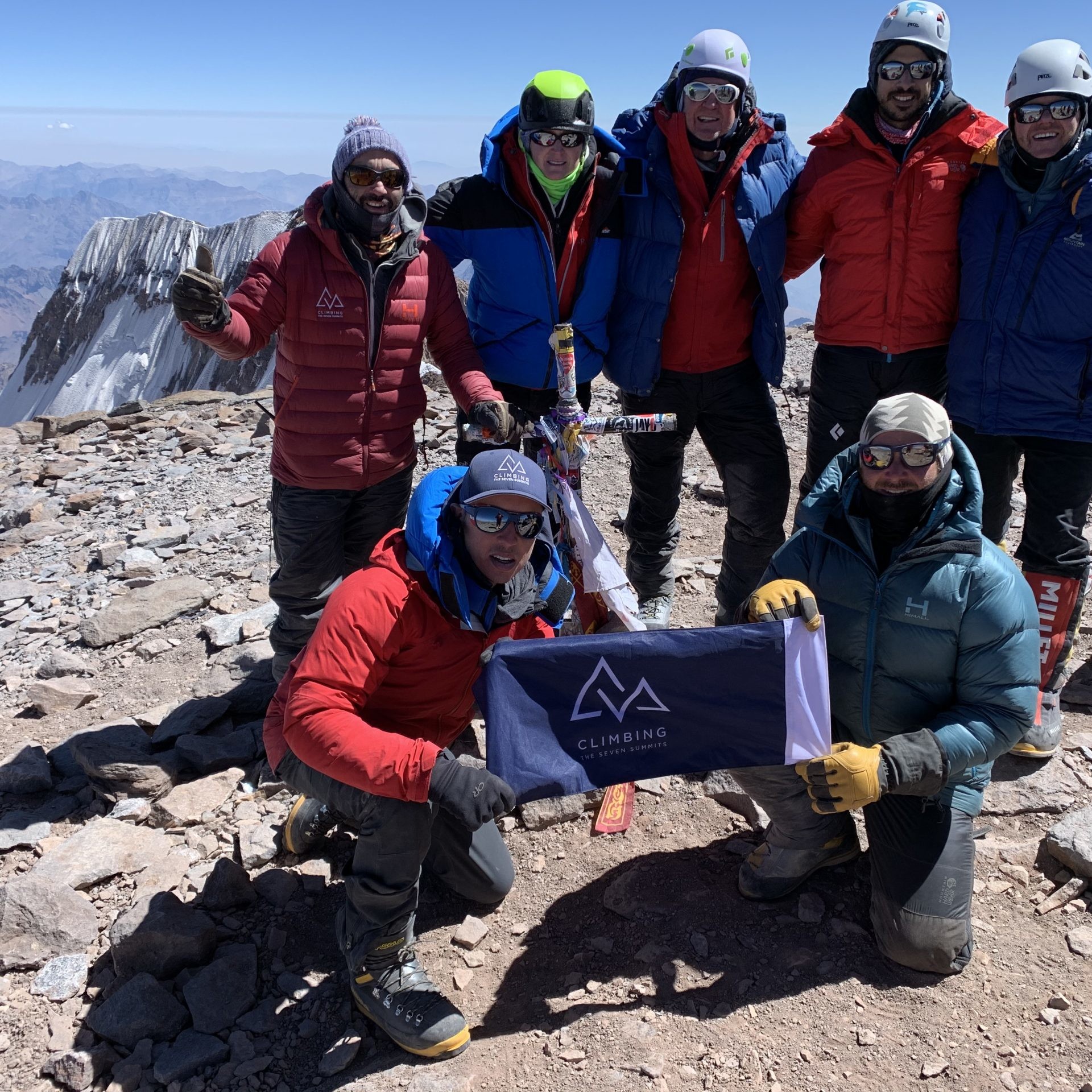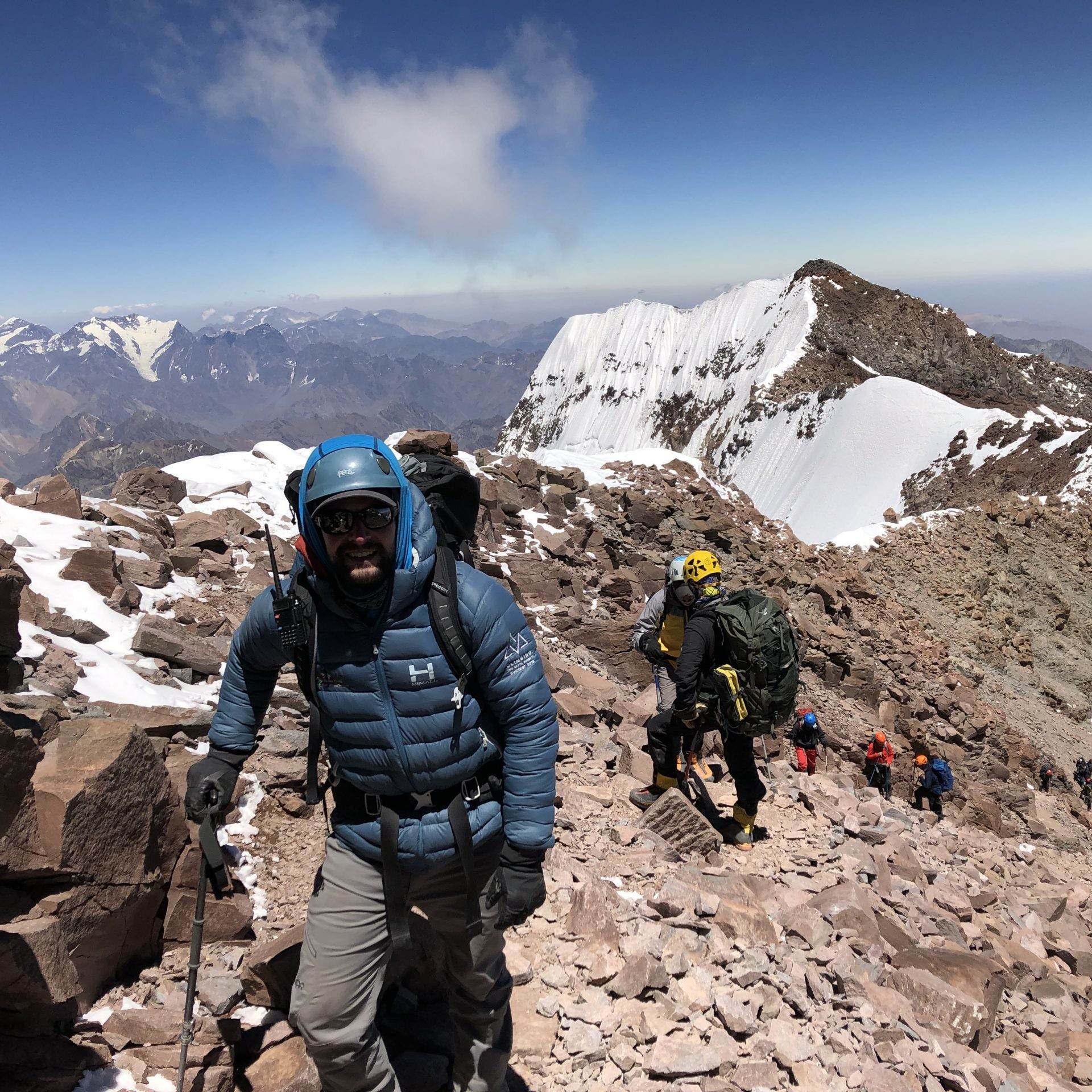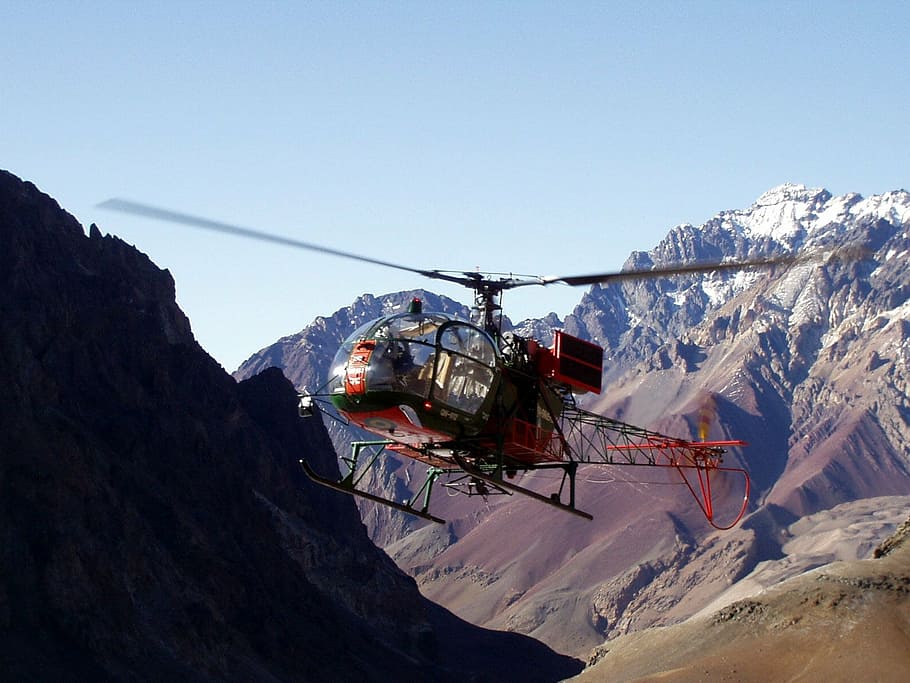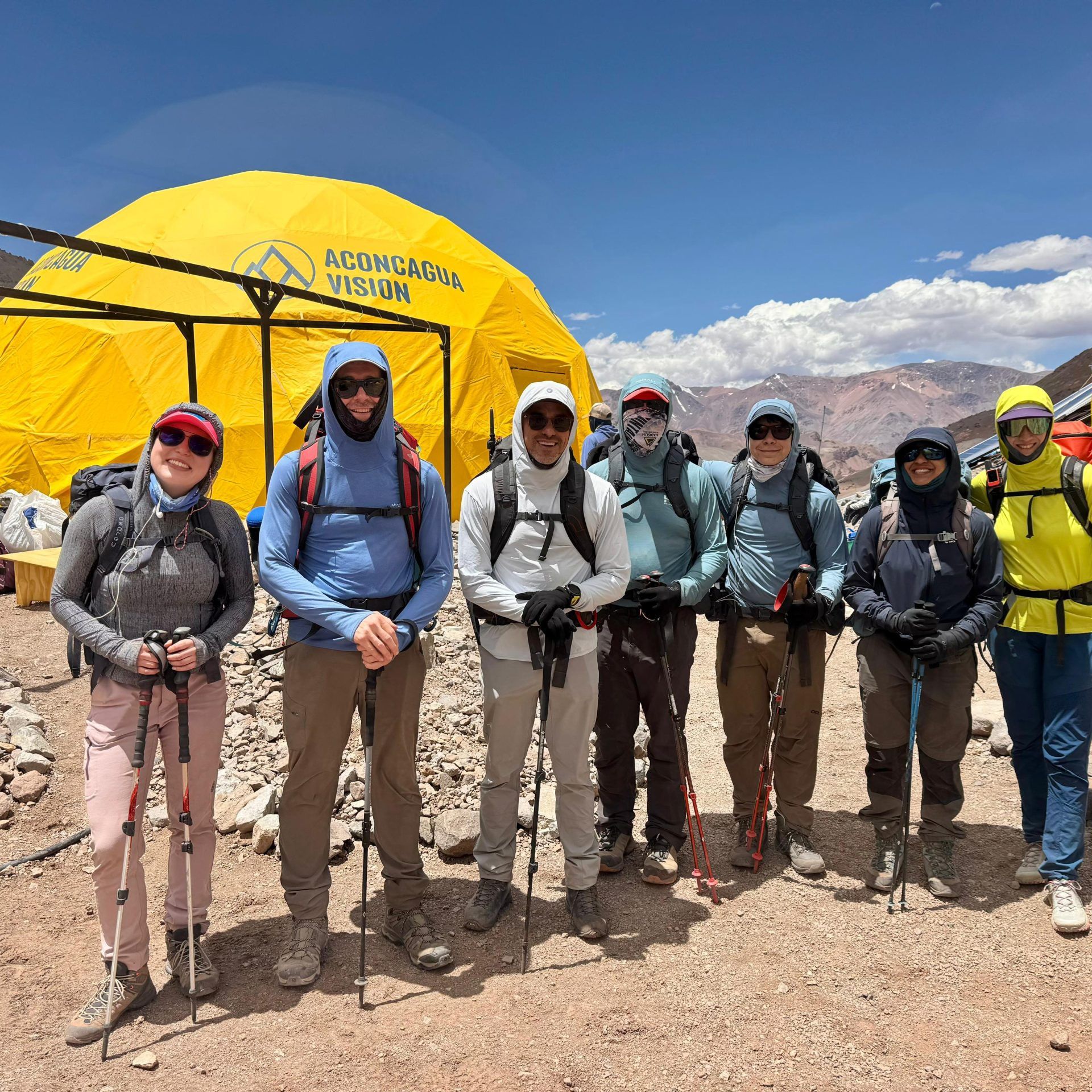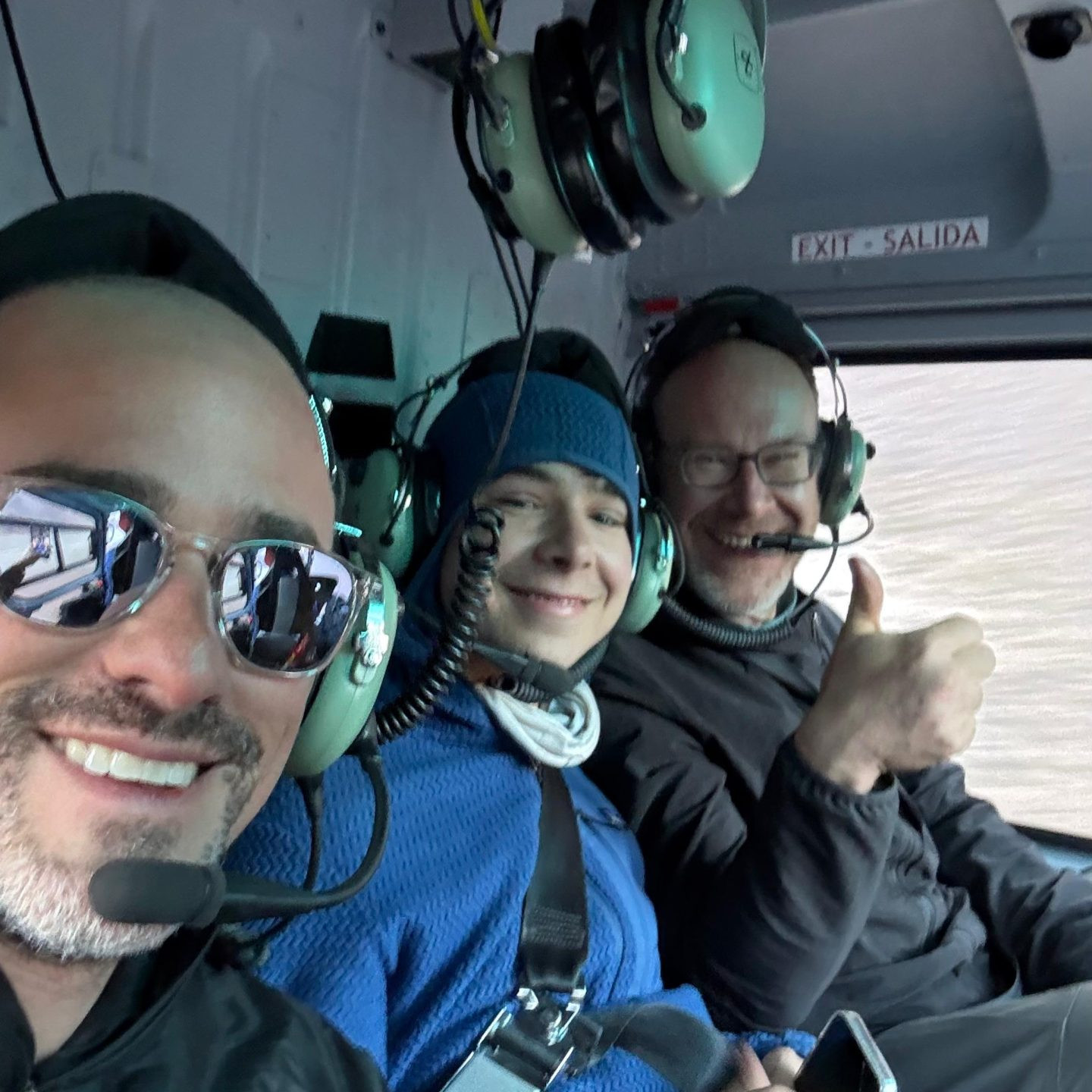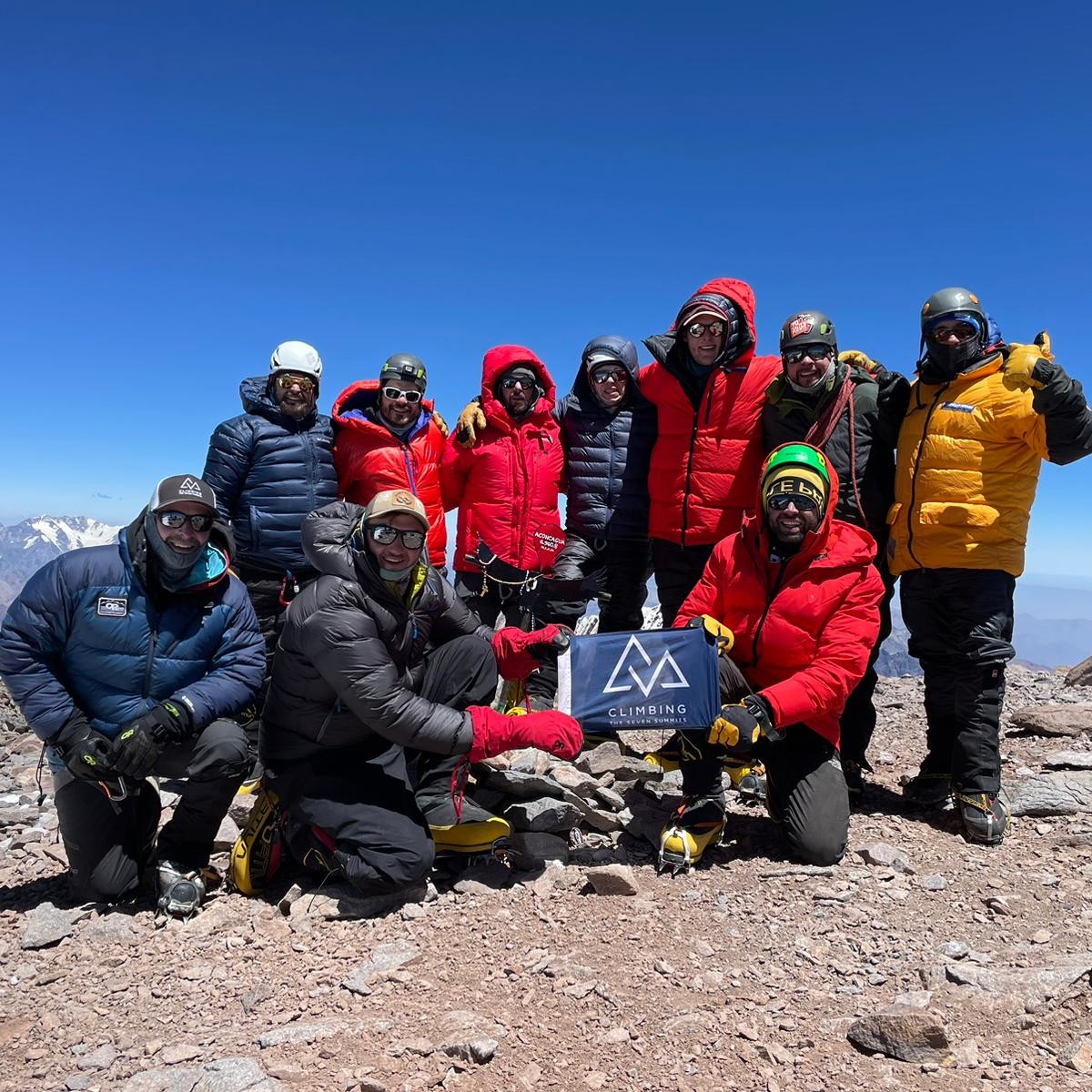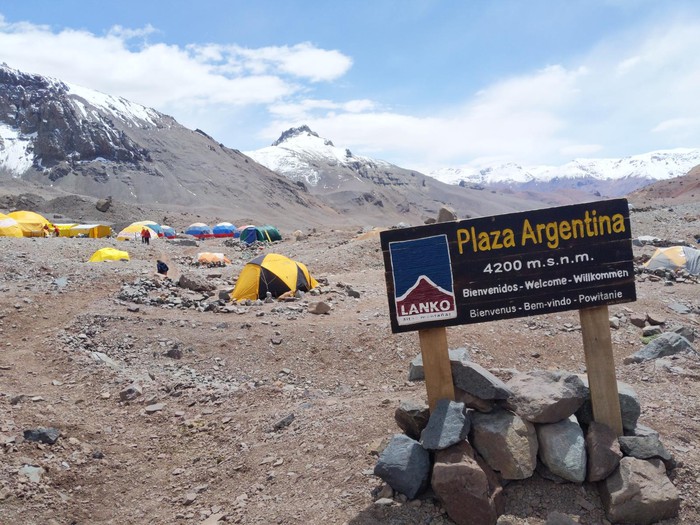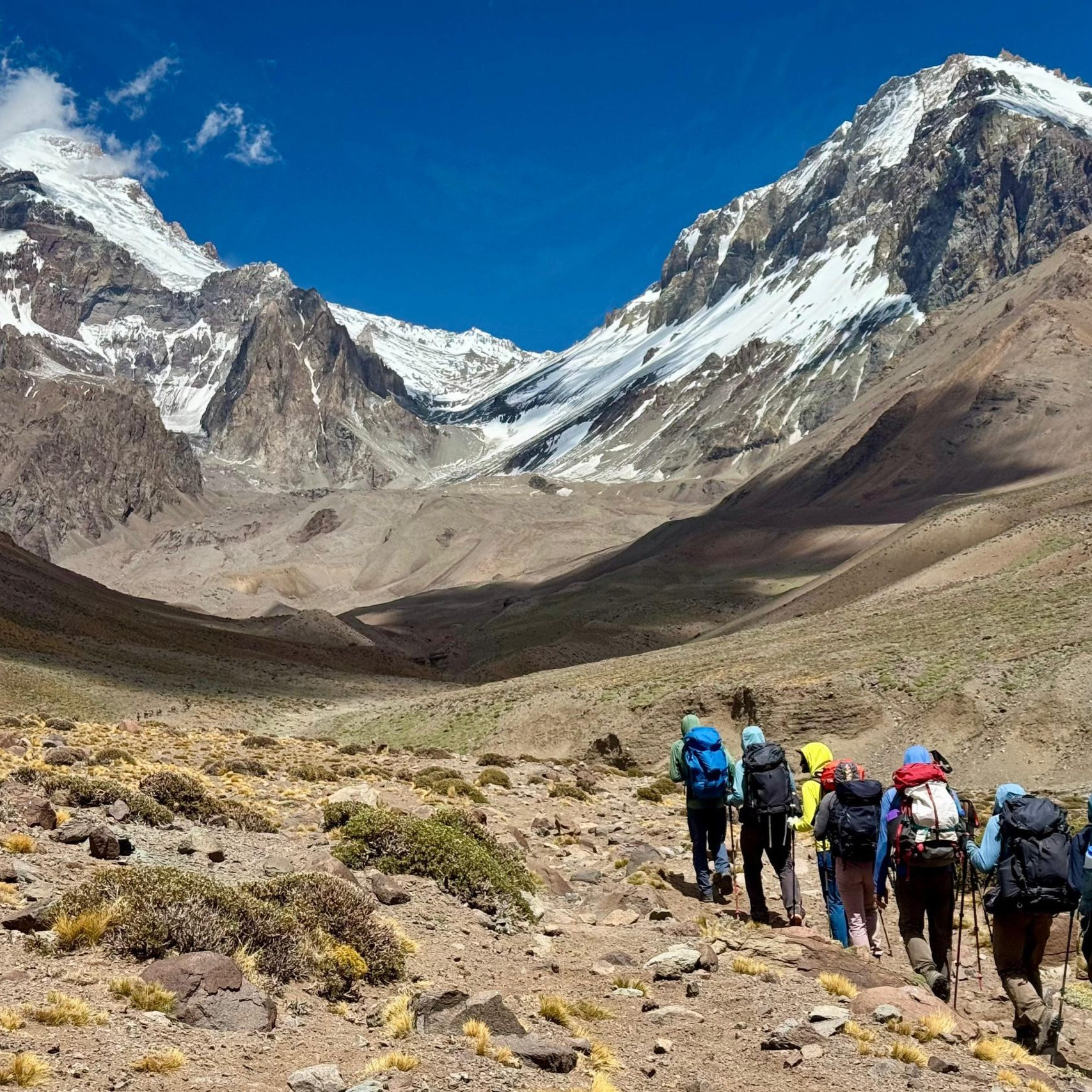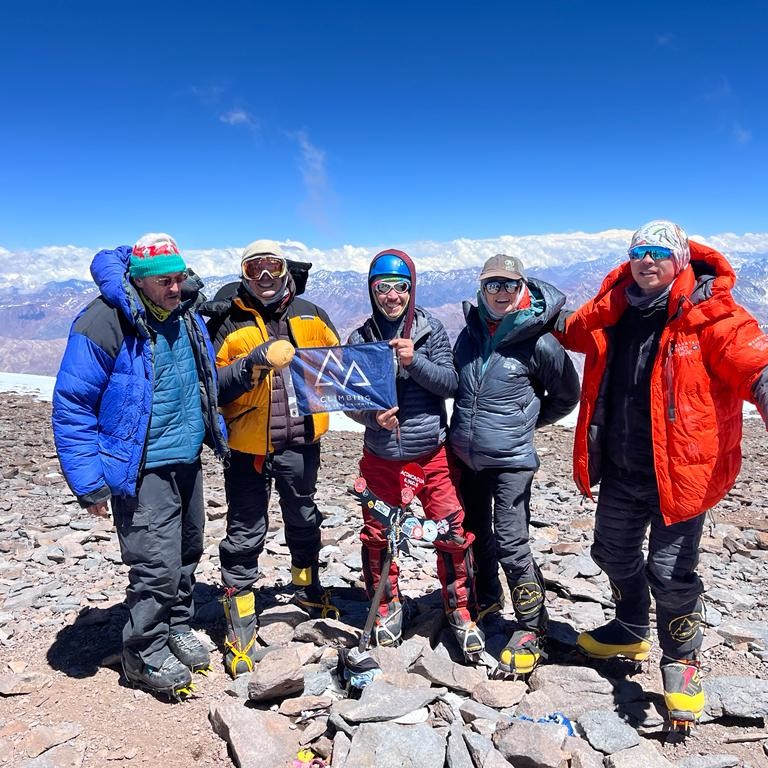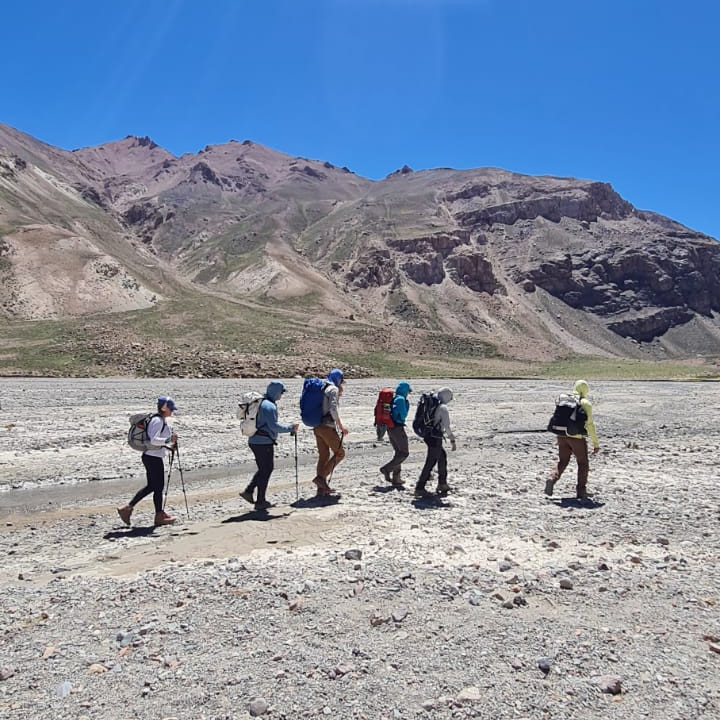Onwards to Chimborazo and the Galápagos
Onwards to Chimborazo and the Galápagos
A quick update for today!
Our climbers in Mendoza enjoyed a team dinner last night (photo below). Today, they picked up their climbing permits from Parque Provincial Aconcagua and made their way to Puente del Inca. Over the next three days, they will trek to Plaza Argentina Base Camp, assisted by mules carrying their gear. We employ a very conservative acclimatization schedule for our Aconcagua climbers as they make their way up in elevation to Base Camp, which sits at approximately 4,200 meters (13,780 to 13,800 feet).
And in Ecuador, all but one climber turned their attention to Chimborazo today. This additional peak is an add-on climb available to all climbers and a great way to make the most of your acclimatization and work already put in. The team will get into place at our tented Base Camp before dialing in their summit window in the next day or two.
But, for that one climber who isn’t joining us on Chimborazo, they have something else pretty magical up their sleeve… our signature Galápagos Islands Add-On! This extension is one of our favorite ways to celebrate success in the mountains and tick off a bucket-list trip, all while walking in the footsteps of Charles Darwin. We look forward to hearing more about the island’s famous seafaring marine iguanas, equator-dwelling Galapagos penguins, and massive, long-lived giant tortoises!
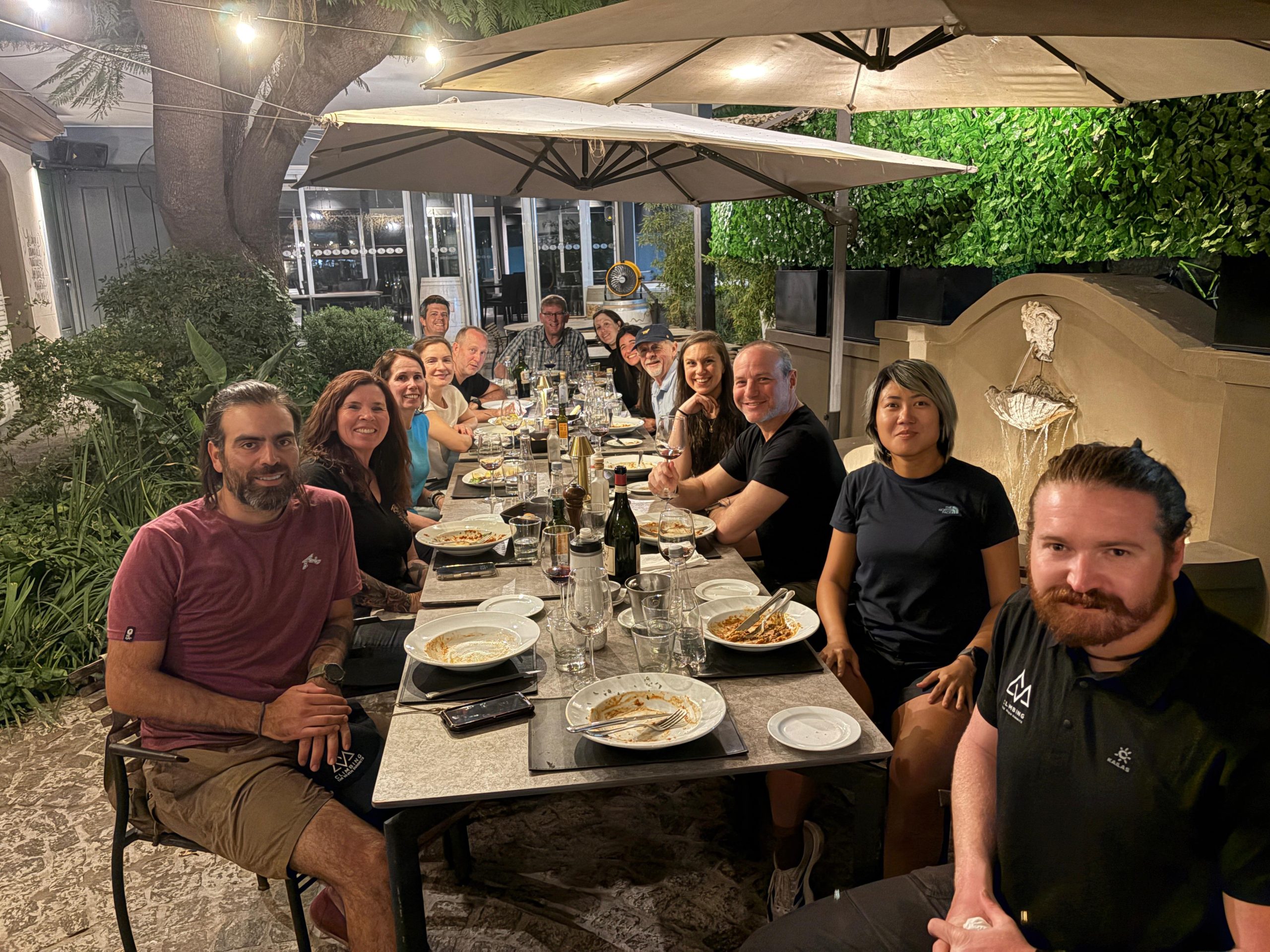
Galápagos Islands Sneak Peek:
Aconcagua Climbers Meet in Mendoza
Aconcagua Climbers Meet in Mendoza
Our Ecuador Volcanoes team got into position on Cayambe (18,996 feet), which was their second objective of the expedition. News from CTSS Guide Ty Sauerbrey came in that the team decided to turn around at 17,000 feet because of avalanche risk on the high-mountain. We commend the team on making this difficult decision and for understanding that safety is always our top priority on any climb. The team is now resting easy at Termas de Papallacta’s natural hot springs, and they are happy that a conservative decision was made on Cayabme.
Six climbers from this team will tack on a third objective, Chimborazo (20,548 feet), an Add-On climb available to all climbers. Here’s a peek at what their itinerary will look like for the rest of this expedition:
- Drive to Quito and enjoy a celebration dinner
- Drive to Chimborazo and hike to High Camp
- Summit Chimborazo and return to Quito
- Departure Day
Also in South America, our next Aconcagua team is on the ground and gearing up for an incredible expedition. Today, they are doing gear checks and a team briefing with their guides, followed by a team dinner tonight. Tomorrow, they will get their climbing permits and then head to Puente del Inca for one more cozy hotel night before hitting the trail to Plaza Argentina Base Camp.
Photos below from our Ecuador Team:
Cotopaxi Summits for CTSS Team
Cotopaxi Summits for CTSS Team
We had some big summit success today on Cotopaxi! The team didn’t exactly have an alpine start; they opted for an 11pm wake-up, a 12am departure, and by 6:30am the team was standing on the summit of Cotopaxi.
A massive congratulations goes out to:
- Diego A.L.
- Jessica S.
- Thomas M
- Blake H.
- Ched L.
CTSS Guide Ty Sauerbrey let us know that the winds were low, the sunshine was plentiful for the hike down, and it was a perfect summit day!
Photos courtesy of Ty:
Ponchos on Cotopaxi for Ecuador Volcanoes Team
Ponchos on Cotopaxi for Ecuador Volcanoes Team
On Aconcagua, all climbers have returned to Mendoza. Some opted for a helicopter exit, while others completed the entire trek from Plaza de Mulas Base Camp to Puente del Inca. CTSS Guide Mike King shared this update with our team: “The remaining 5 had a great walkout, which isn’t always the case on that day. They made a safe ‘race’ of wanting to do it in 6 hours, and they laughed & talked the whole way.”
And also in South America, our Ecuador Volcanoes team is having a great time, as reported by CTSS Guide Ty Sauerbrey. The weather was giving the team a fierce go of it today, but everyone stayed in good spirits even while out training on the mountain. Ty shared that he convinced everyone to wear their ponchos to dinner, which no doubt raised the group’s energy and vibe. This is the type of stuff we LOVE about being on expedition.
Tomorrow, the team will sleep in and rest in the morning before starting their Cotopaxi summit bid tomorrow night. Thank you to Ty for sharing these photos:
Ecuador Team Acclimatizes on Rumiñahui Central
Ecuador Team Acclimatizes on Rumiñahui Central
A quick update from our team in Ecuador. Climbers had a successful hike to the summit of Rumiñahui Central, with nearly all climbers hitting the summit. After they wrapped that hike, they made their way to the base of Cotopaxi (19,347 ft) and up to the Refugio José Rivas. From there, the team will do a training session on the mountain before taking aim at the summit.
Photos from the CTSS Archives
Snow on Aconcagua and City Tour in Quito
Snow on Aconcagua and City Tour in Quito
Our teams in the Southern Hemisphere have been busy.
In Ecuador, the whole team has landed and will begin acclimatizing soon. After a day of gear checks, guide briefings, and even a city tour, our team will turn their attention to Rumiñahui Central, which sits at 15,203 feet. Photos below from CTSS Guide Ty Sauerbrey from their day spent exploring Quito!
The weather has been active in Argentina, which prevented our team on Aconcagua from summiting. An update from CTSS Guide Mike King gave us a peek into the conditions: “Woke up to clear skies, but the wind and snow quickly turned on us. We got to just below Independencia Hut.”
The team is now resting at Plaza de Mulas and will continue their trek out in the coming days. We congratulate ALL of our climbers on this team for their efforts on the mountain and the personal wins they found along the way. The photo below is from Mike King, and the conditions sure do look a little tough!
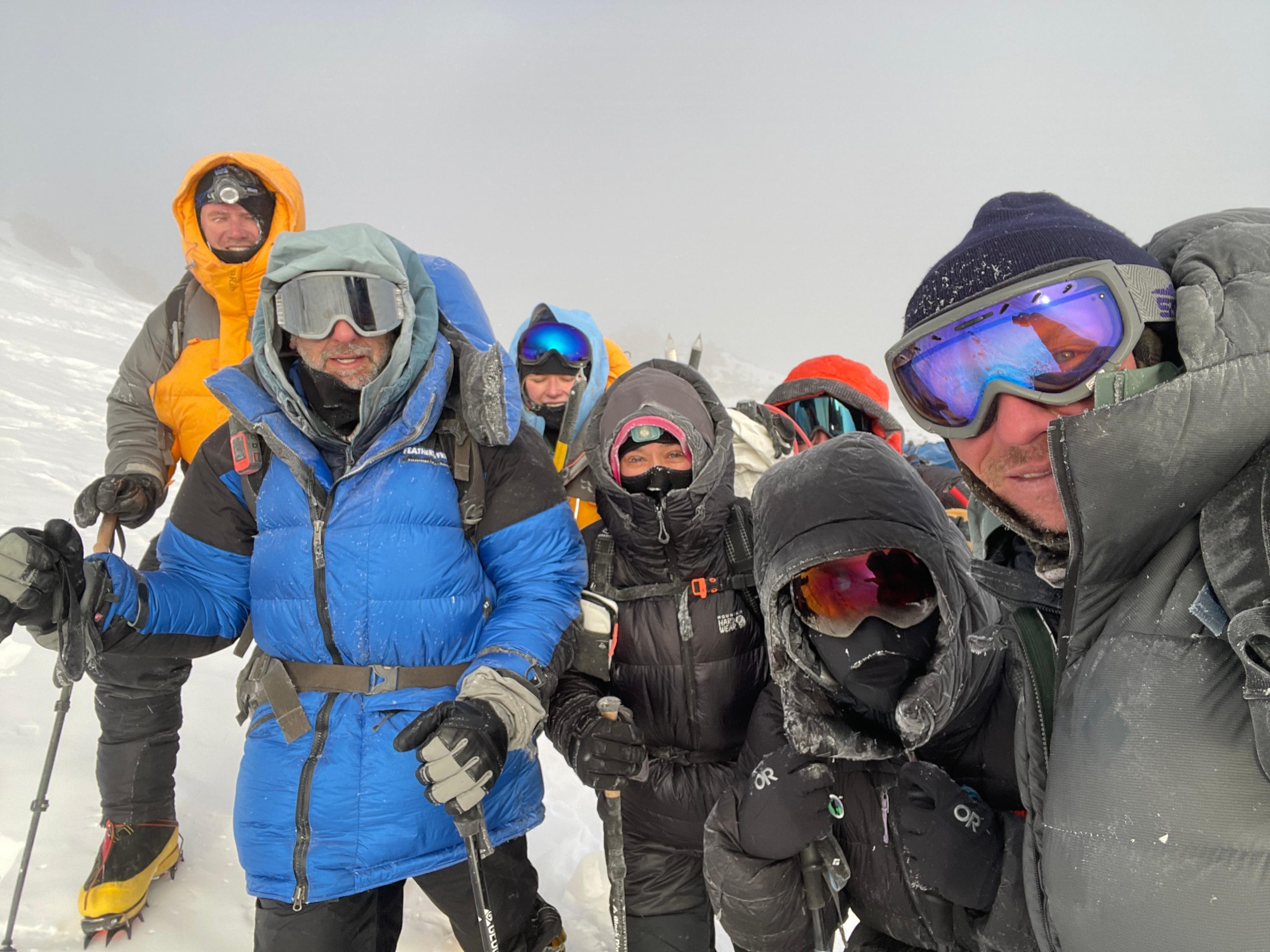
Our Mount Sidley team has officially departed Antarctica and are now back in Punta Arenas before catching flights home. We loved following along with all of our summit teams on Vinson and Sidley this year. With their safe return to Chile, our Vinson season has officially wrapped with a massive amount of success on the mountain!
Sidley Summits for CTSS Climbers
Sidley Summits for CTSS Climbers
More good news from Antarctica landed yesterday! Our team reached the summit of Mount Sidley, 14,058 ft (4,285 m), yesterday. A massive congratulations goes out to:
- Beata R.G.
- Dawid M.
- Shuvam C.
- Shahad A.
And back on Aconcagua, our team took a rest day at Camp 2 today and enjoyed a massive taco dinner. CTSS guide Ty let us know that everyone is happy, and we aren’t one bit surprised after experiencing Argentinian hospitality and cuisine. The team also shared a few images from their climb to Camp 2 yesterday, images below from climber Jarmila:
Supplemental Oxygen
Aconcagua Supplemental Oxygen for Summit Day
$1,500 USD
Some climbers appreciate the extra boost, warmth, and efficiency extra oxygen provides on the final push for Aconacgua. It’s also great way to practice and get familiar with climbing on oxygen if you’re looking toward future 8,000m objectives.
This add-on includes oxygen supply, mask, and regulator above high camp on your summit day.
Please note, extra oxygen is non-refundable and non-transferable.
All prices are in US Dollars.
CTSS requires clients to buy trip insurance for all expeditions. Please see our page on trip insurance and cancellation policy for more information.
All payments once submitted are non-refundable and non-transferable. If balances are not received by specified dates, the client forfeits their place on the program and any prior fees paid.
Helicopter Options
Aconcagua Helicopter Options
Inquire for seasonal pricing
A helicopter exit from Plaza de Mulas to Horcones will save you the 18-mile hike back to the park entrance at the end of your climb. Because your date arriving at base camp can change and weather can prevent flights, helicopter exits will be scheduled upon your arrival, usually for later that same afternoon or the next morning.
The helicopter operators accept only cash, in US dollars, on the mountain and require payment before departure from Plaza de Mulas.
Pre-booking before your trip will help limit the amount of cash you need to carry throughout the expedition.
All prices are in US Dollars.
CTSS requires clients to buy trip insurance for all expeditions. Please see our page on trip insurance and cancellation policy for more information.
All payments once submitted are non-refundable and non-transferable. If balances are not received by specified dates, the client forfeits their place on the program and any prior fees paid.
Porter Support
Aconcagua Porter Support
$2,150 USD
Many clients choose to use porters to facilitate their ascent of Aconcagua, increasing their chances of success and making their climb much more enjoyable.
The trip price includes the cost of mules to transport the group’s gear into base camp, but not porters above base camp. Unlike on other mountains, porters on Aconcagua work for the on-mountain logistics companies rather than being attached directly to a particular expedition. If you would like a porter to assist in carrying your personal gear and a share of the group gear, you may either hire them on an ad hoc basis during the climb or arrange their services in advance.
Please note, it is less expensive to hire porters on the mountain than to arrange them in advance. If hiring porters on an ad hoc basis, all payments must be made in cash with US dollars on the day of the service provided. Booking ahead of time guarantees availability and eliminates the need to carry this large amount of cash during the climb.
A standard porter load is 20kg and charged at a flat rate up to that maximum weight (i.e., if you only have 17kg, you will still be charged the 20kg rate). Additional weight will be charged at a pro-rated amount per kilogram. It is important to note that using a porter will still leave you with some gear to carry. However, your pack will be limited to 10-14kg rather than 20-25kg for each carry and move.
If you want to make your climb easier, or you simply want to enjoy the climb more, hiring porters may be the right decision.
All prices are in US Dollars.
CTSS requires clients to buy trip insurance for all expeditions. Please see our page on trip insurance and cancellation policy for more information.
All payments once submitted are non-refundable and non-transferable. If balances are not received by specified dates, the client forfeits their place on the program and any prior fees paid.
